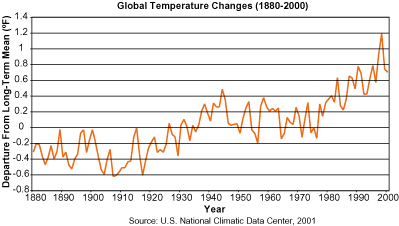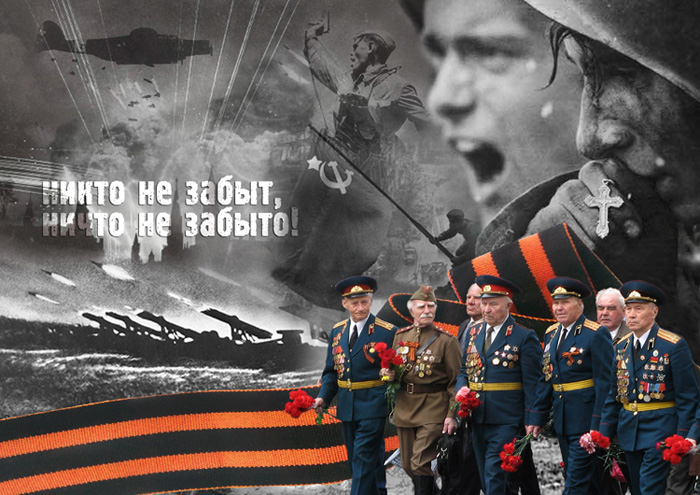- Преподавателю
- Иностранные языки
- ЭЛЕКТИВНЫЙ КУРС «ОРЕНБУРГСКАЯ ОБЛАСТЬ – ЖЕМЧУЖИНА УРАЛА»
ЭЛЕКТИВНЫЙ КУРС «ОРЕНБУРГСКАЯ ОБЛАСТЬ – ЖЕМЧУЖИНА УРАЛА»
| Раздел | Иностранные языки |
| Класс | 11 класс |
| Тип | Другие методич. материалы |
| Автор | Мерзлякова Т.Ю. |
| Дата | 21.08.2015 |
| Формат | doc |
| Изображения | Есть |

Министерство обороны Российской Федерации
ФГОУ «Оренбургское президентское кадетское училище»
Методический кабинет
ЭЛЕКТИВНЫЙ КУРС
«ОРЕНБУРГСКАЯ ОБЛАСТЬ - ЖЕМЧУЖИНА УРАЛА»
Учебно - методическое пособие
Оренбург 2012
Министерство обороны Российской Федерации
ФГОУ «Оренбургское президентское кадетское училище»
Методический кабинет
ЭЛЕКТИВНЫЙ КУРС
«ОРЕНБУРГСКАЯ ОБЛАСТЬ - ЖЕМЧУЖИНА УРАЛА»
Учебно - методическое пособие
по английскому языку
ОРЕНБУРГ 2012
УДК.372.8.
Рецензенты: Бобылева А.А к.п.н., преподаватель кафедры истории Отечества ФГБОУ ВПО «Оренбургский государственный аграрный университет».
Коротова Н.А.,МерзляковаТ.Ю., Скворцова В.П. Элективный курс по краеведению «Оренбургская область - жемчужина Урала» учебно - методическое пособие - Оренбург: Оренбургское ПКУ, 2012. - 70 с.
Учебно-методическое пособие «Orenburg Region is a Pearl of the Ural» разработано с целью использования воспитательного потенциала профильного обучения, а именно, воспитания патриотизма учащихся средствами элективного курса по иностранному языку.
Данная методическая разработка предназначена для преподавателей Оренбургского президентского кадетского училища и рекомендована к использованию в образовательном процессе училища.
Рассмотрено на заседании предметно методической кафедры преподавателей иностранного языка (протокол №10 от 22.05.12).
© ФГОУ «Оренбургское президентское кадетское училище», 2012
Содержание
1.Пояснительная записка ………………………………………………5
2.Планирование работы…………………...……………………………9
3. Модуль 1……………………………………………………………..15
4. Модуль 2……………………………………………………….....….40
5. Модуль 3……………………………………………………………..50
6.Литература…………………………...……………………………….66
Пояснительная записка
В условиях социально-экономических, политических преобразований на территории современной России значительно изменилось существовавшее до сих пор отношение к нравственности, духовности - основам консолидации общества. В многочисленных социологических, психологических, педагогически исследованиях констатируется факт восприимчивости ребенка к усвоению общечеловеческих, национальных региональных ценностей, его ориентировки на утверждающиеся в общественном сознании эталоны поведения. Это дает благодатную почву для передачи подрастающему поколению традиций, обычаев, правил и норм поведения, воспитания глубоких социальных чувств, в том числе патриотизма.
Феномен патриотизма характеризуется неоднозначностью. Это объясняется, прежде всего, природой данного явления, многоаспектностью его содержания, сложностью структуры и многообразием форм проявления. Кроме того, проблема патриотизма рассматривается разными исследователями в различных исторических, социально-экономических и политических условиях, в зависимости от личной гражданской позиции, отношения к своему Отечеству, от использования ими различных сфер знаний и т.п. Поскольку состояние и развитие общества напрямую зависит от уровня осмысления и способов воспитания у его членов патриотизма, то возникает необходимость привести в соответствие цель, задачи, формы, средства патриотического воспитания, то есть, по сути, государственные интересы в этой в области, и потребности, особенности современных школьников. Поэтому требуется поиск инновационных методов, форм патриотического воспитания.
Еще одной тенденцией является преобладание в образовательной парадигме таких идей, как модернизация, гуманизация, непрерывность и вариативность, доступность образования. Профильная подготовка, реализуемая в образовательных учреждениях всех уровней, направлена на комплексное развитие личности и ее творческих способностей, на формирование у учащихся способности быть успешными и конкурентоспособными, усваивать способы саморазвития, творчески применять знания в незнакомых ситуациях. В состав профиля обучения, как известно, входят элективные курсы, позволяющие школьникам развить интерес к тому или иному предмету и определить свои профессиональные пристрастия.
Патриотическое воспитание - это способ «сделаться настоящими людьми…, не переставая быть гражданином своего отечества…» [7, 68].Проводником идеи патриотизма сейчас, как и во все времена, является школа, которая, реализуя общее содержание образования, обладает большим воспитательными возможностями.
Учебно-методическое пособие «Orenburg Region is a Pearl of the Ural» разработано с целью использования воспитательного потенциала профильного обучения, а именно, воспитания патриотизма учащихся средствами элективного курса по иностранному языку.
Традиционно в сфере образования иностранный язык рассматривается, в основном, как средство приобщения к культуре страны изучаемого языка. Вследствие этого учащиеся испытывают затруднения при передаче информации о фактах и явлениях, связанных с родной / региональной культурой, и, следовательно, в процессе реальной коммуникации не способны раскрывать и транслировать ее своеобразие, сделать достоянием мировой культуры.По нашему мнению, иностранный язык является не просто средством проникновения в культурное поле и менталитет другой нации, но и ключом для открытия уникальности и своеобразия собственной культурной самобытности. В этой связи М. Бахтин писал: «Культура только в глазах другой культуры раскрывает себя полнее и глубже»[1, 507]. Понимание и восприятие современного мира во всем его многообразии, осознание необходимости межкультурной коммуникации как основополагающего принципа сосуществования в нем, возможно только на осознании собственной индивидуальности, знаний национальной культуры и истории своего края в неразрывной связи с культурой страны изучаемого языка. В связи с этим, считаем целесообразным интегрировать краеведение и изучение иностранного языка, что даст качественно новый результат - воспитание патриотизма учащихся.
Предлагаемый курс «Orenburg Region is a Pearl of the Ural» («Оренбургский край - жемчужина Урала») предназначен для учащихся старших классов. Он рассчитан на 34 часа и состоит из трех тематических разделов. Периодичность занятий - 1 час в неделю.
В основе курса лежат принципы:
-Принцип гуманизации, определяющий отношение к школьнику как свободной, целостной личности, способной к самостоятельному выбору ценностей, самоопределению и творческой самореализации, оказание помощи в этом процессе;
-Принцип ценностно-смысловой направленности, ориентированный на создание условий для погружения учащихся в социально-ценный опыт прошлых поколений;
-Принцип единства содержательной и процессуальной сторон обучения, предполагающий использование межпредметных связей, коммуникативную направленность воспитания и обучения;
- Принцип вариативности, требующий учета индивидуальных особенностей школьников, соответствия тем, материалов курса возрасту, интересам и уровню языковой подготовки учащихся.
Цель - воспитание патриотизма учащихся средствами элективного курса по иностранному языку.
Задачи воспитательные:
-актуализация общественно значимых качеств личности (любви к своей Родине, готовности к служению Отечеству и его вооруженной защите и т.д.);
-формирование нравственной культуры ребенка и стимулирование его нравственной активности;
Задачи обучающие:
-обучение девятиклассников лексическим единицам в соответствии с отобранными темами, навыкам оперирования этими единицами в коммуникативных целях;
-совершенствование умений учащихся в области говорения и письма(обучать аргументированно выражать свое мнение, обсуждать проблемы и предлагать решения, писать письма, эссе, статьи);
-научение аудированию(умение слушать аутентичные тексты краеведческого характера с пониманием общей идеи, с извлечением информации и с детальным пониманием);
-совершенствование умения читать аутентичные тексты по краеведческой тематике с пониманием общей идеи, с извлечением информации и с детальным пониманием),
Задачи развивающие:
-развитие языковой компетенции и умения участвовать в межкультурной коммуникации,
-формирование информационной компетенции посредством вовлечения учащихся в исследовательскую и проектную работу;
-развитие самостоятельности мышления.
Ожидаемые результаты:
-поышение уровня патриотической воспитанности учащихся,
-формирование умения транслировать своеобразие национальной культуры, достойно представлять свой регион на международном уровне,
-становление диалогического самосознания личности,
-расширение лексического запаса в соответствии с темами регионоведческого характера;
-формирование умения работать в команде, вместе находить решения проблем.
Главное педагогическое условие эффективности патриотического воспитания школьников средствами интегрированного курса - это соблюдение предложенной краеведческой тематики.
Приложение 1
Планирование работы (The Plan)
Lead in
Введение
Listening
Аудирование
Speaking
Говорение
Reading
Чтение
Writing
Письмо
Fact-file
Факты
Miscellaneous
Разное
Project work
Проектная работа
Unit 1. A Glimpse at the Geography of Orenburg region География Оренбургскойобласти
Step 1 - 2 Some Geographical features Некоторые географические признаки
What images arise in your mind when you hear the words "Orenburg region"?(Какие ассоциации вызывает у тебя выражение «Оренбургская область?)
What is your native placefamous for?(Чем примечательнатвоя Родина?)
Look at the pictures and choose one to decide where you would like to spend a summer day. Explain why you have chosenjust this place
Объясни и аргументируй, где ты бы хотел провести выходной день.
The Pearl of the Urals
ЖемчужинаУрала
Orenburg Region-a Multinational Land
Оренбуржье - многонациональный регион
Area (площадь
Boundaries
(границы)
Population
(население)
The main river (главная река)
Capital city -Orenburg
(главный город - Оренбург)
Step 3 Industry, Agriculture, Economy Промышленность, сельское хозяйство, экономика
What big towns of Orenburg region do you know (Какие города Оренбургскойобласти ты знаешь?)
Do you know what is produced in these towns? (Что производят в этих городах)
Glimpses of Orenburg Region Industry, Agriculture and Economy
(Оренбургская промышленность, сельское хозяйство и экономика)
Downy Shawls
(Пуховые платки)
Step 4 Rivers of Orenburg Region Реки Оренбургской области
What do you know about the Ural, the main river of Orenburg region? (ЧтотызнаешьорекеУрал?)
Do rivers of Orenburg region play an important role in its industry and agriculture?(Играют ли роль реки Оренбургской области в развитии промышленности, экономики?)
Different Names of the Same River
Разные названия одной реки
Do you know that there are more than 290 rivers on the territory of Orenburg region? Choose one of the rivers of Orenburg region and find out its main features similar to the fact-file about the Ural River
На территории Оренбургской области более 290 рек. Выбери одну из них и составь fact-file.
Step 5 - 6 Climate and seasons Климат и времена года
What words would you choose to describe the climate of Orenburg?Какими словами ты бы описал климат Оренбурга?
IsOrenburgclimatefavorableforourhealth? Благоприятная ли в Оренбурге атмосфера для здоровья?
Do you agree that Orenburg with its unique atmosphere influences people's lifestyle, mood and character?Согласен ли ты, что уникальная атмосфера Оренбурга воздействует на образ жизни, настроение и здоровье?
Imagine that you are a competent weatherman working for Orenburg radio. Study the map and the chart, elicit the weather forecast for Orenburg region and report it to the listeners.
Представь, что ты компетентный метеоролог, работающий на оренбургском радио. Рассмотри карту, составь прогноз погоды для Оренбургской области и доложи о результатах слушателям
The climate, seasons and weather
Климат, времена года и погода в Оренбуржье
The Orenburg wheat is recognized as one of the best in the world.
Оренбургская пшеница считается одной из лучших в мире
Step 7 - 8 Climate change. Ecological Problems of Orenburg region.
Изменение климата. Экологические проблемы Оренбургской области
Comment on the following statement.
«If you don't think about the future, you will not have it». J. Galsworthy
Прокомментируйте выражение Дж. Голсуорси «Если Вы не будете думать о будущем, у Вас его и не будет»
Listen to the dialogue between an American professor researching the processes of the climate change and the young journalist.
Прослушай диалог между американским профессором, исследующим проблемы изменения климата и журналистом
Look at the diagram and say how have global surface temperatures increased since the late-19th century?
Посмотри на диаграмму и объясни насколько увеличилась температура поверхности с конца 19 века.
EcologicalsituationofOrenburgregion
Экологическая обстановка в Оренбургской области
Buzuluksky Forest is a contestant of «7 Wonders of Russia».
Бузулукский бор - соперник 7 чудес света.
It's common knowledge that personal traits of people of different countries are a result of the influence of Climate, geography and environment. Try to define the level of their impact on the image of the modern resident of Orenburg.
Определи влияние климата и окружающей среды на образ современного жителя Оренбурга
Step 9 Wildlife of Orenburg Region Природа Оренбургской области
Can you recollect songs, stories or poems by our Russian writers and poets where the steppe was mentioned?Вспомни песни, рассказы или стихи русских писателей и поэтов, где упоминается степь?
The landscapes of Orenburg region
ЛандшафтОренбургскойобласти
Try to find interesting facts about Zapovednik or animals that live on its territories.
Найди интересные факты о Заповеднике или животных, которые живут на его территории
Unit 2. The City's Remote Historical Past Возвращение к историческим истокам
Step 1 Orenburg. The History of its Name Оренбург, история названия
Take two minutes to write down as many things as you can that you associate with Orenburg. For example, Drama Theatre, Natural History Museum.
Запишите ассоциации, связанные с Оренбургом (Драматический театр, музей и т.д.)
Orenburgnamehistory.
Из истории происхождения названия «Оренбург»
Write a letter. In your letter:
Tell her about Orenburg
Ask three question about Tanya's trip.
Напиши письмо в котором расскажи об Оренбурге и задай три вопроса о путешествии Тани.
Step 2 Turning pages of history over….Листая страницы прошлого
Describe the part of your city.
Опиши часть города.
History of Orenburg.
История Оренбурга
Write an event for each of the dates. Напиши о событиях каждой даты
Step 3 Keep the memory Помните
Look at the picture and say what period of Russian history it relates to.
Посмотри на картину и скажи к какому периоду русской истории она относится
Alexander Schmorell
АлександрШморель
Orenburg's contribution to the Great Victory.
Вклад Оренбурга в Великую победу
Write a letter to your English speaking friend about our national holiday.
Напиши письмо зарубежному другу о нашем национальном празднике
Make a poster or a presentation on the topic "We must never forget".
Сделай постер или презентацию «Мы не должны забывать!»
Unit 3 Present Day Orenburg region. What Makes Orenburg so Distinctive? Оренбургская область в настоящие дни. Что делает Оренбург таким неповторимым?
Step 1 Transport in Orenburg. Оренбургский транспорт
Listen to six young people about different kinds of transport. Match the statement A-G to the following speakers.
Послушай высказывания людей о видах транспорта, сопоставь утверждения.
Look at the pictures and discuss: How would you like to travel? Which means of transport would you use and why?
Как ты любишь путешествовать? Какими средствами транспорта пользуешься?
Table tennis is one of the most popular kinds of sport in Orenburg region.
Настольный теннис - один из популярных видов спорта в Оренбургской области
If you would like to learn more about Orenburg sportsmen, visit local sites and make a presentation about them.
Сделай презентацию об оренбургских спортсменах, используя интернет
Step 2 Sportive Orenburg. Спортивный Оренбург
Think of as many words as possible related to the theme "Sports in Orenburg"
Придумай слова относящееся к теме «Спортивный Оренбург»
Listen to six young people about health and fitness. Match the statement A-G to the following speakers.Послушай высказывания 6 человек о здоровье и фитнесе
Sports in Russia - one of the most claimed activity in Russia.Спорт в России - один из самых востребованных видов деятельности
Step 3 Sport's stars Звезды спорта
Listen to the BBC teacher and learn these idioms.
Послушай преподавателя BBC и выучи идиомы
What are the most popular outdoor winter sports in Orenburg region?Популярные зимние виды спорта в Оренбурге.
What opportunities for sports does Orenburg summer afford?Какие возможности есть в Оренбурге для занятий спортом летом?
TheOlympicGames
Олимпийские игры
Step 4 Education in Orenburg. Образование в Оренбурге
What is the most popular university in Orenburg?
Самый популярный ВУЗ в Оренбурге
Education in Orenburg.
Образованиев Оренбурге
UNIT 1.
STEP1-2
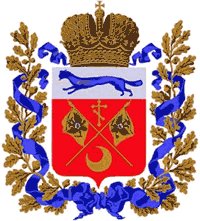
Orenburg Region
Area-124.000 square kilometers
The extension in the western part of the region from
the North to the South-320 kilometers,
in the east-215 kilometers, in the narrowest part
at the town of Kuvandyk-51 kilometers
Boundaries
In the north-Bashkortostan and
Chelyabinsk Region
In the east and south-Kazakhstan
In the west-Samarskaya Region
In the north-west-Tatarstan
Population-2, 179, 551
Russians-73, 94%
Tatars-7, 61%
Kazakhs-5, 76%
Ukrainians-3, 53 %
Bashkirs-2, 42 %
Mordvinians-2, 41%
Germans-0, 13 %
The main river-the Ural
The distance from Orenburg to Moscow-1478 kilometers
Orenburg region, a federal subject of Russia, established-December 7, 1937
Capital city -Orenburg, with the population of 529, 600 (January 1, 2007)
Other big towns of the region: Orsk-246, 100 Novotroitsk-103, 200
Buzuluk-87, 700 Buguruslan-52, 100 Gai-44, 200
Mednogorsk-33,000 Kuvandyk-30, 600 Sorochinsk-30, 400
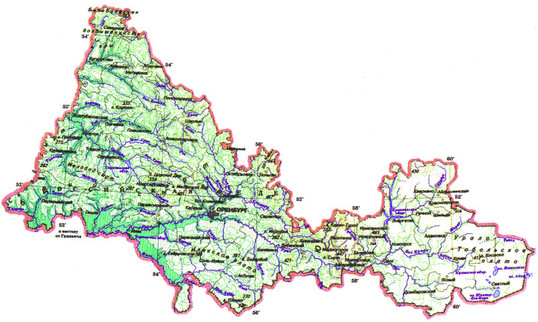
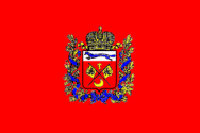
Orenburg Region
Pre-reading task
1. Before you start to read answer these questions:
-
What images arise in your mind when you hear the words "Orenburg region"?
-
What part of Orenburg region do you live in?
-
What is your native place famous for?
2. Look at these numbers and tell what they mean:
1478 529,600 215 124,000 1937 2,179,551 320
3. Check the meaning of the new words in your dictionary and then use them in the following sentences:
deposit jasper appreciate include exceed buckwheat
favourable perfect confluence condition sunflower melon wheat
water-melon provide cultivate ferrous and non-ferrous metals rye
-
Many tourists prefer to buy jewellery made of __________ while their visiting Orenburg.
-
It's so nice to enjoy a juicy _________ on a hot summer day!
-
There are a lot of ____________ and ___________ fields in Orenburg region.
-
Do you want to be a professional farmer and ____________ hard wheat and rye?
-
We have so many __________ sunny days in Orenburg. It's a pity, we don't have the Black Sea as well!
4. Look at the pictures and choose one to decide where you would like to spend a summer day. Explain why you have chosen just this place
Fishing on the river 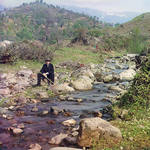
Beach at the river Ural

Life at the riverside
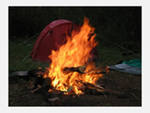
READING
The well-known geologist, academician Fersman, called Orenburg region 'The Pearl of the Urals' for the unique and vast variety of minerals our land is rich in. Read the short texts and match the numbers 1-4 with the titles A-E. One title is extra.
The Pearl of the Urals
A. Agriculture
B. Geographical location
C. Natural resources
D. Wildlife
E. Industry
F. Orenburg region on the world map
1. There are over 200 deposits of 75 different minerals, including oil, gas, coal, ferrous and non-ferrous metals, salt, jasper and brick clays in our region. Michael Lomonosov appreciated the high quality of the Iletsk salt. The deposit of salt is so large that its stock is enough to provide the humankind of the Earth for 10,000 years.
2. Do you know that our region is one of the biggest in Russia? It exceeds the territory of Latvia, Georgia, Armenia, Moldavia, Austria and Portugal and can easily house Belgium, Switzerland, Denmark and Luxemburg taken together. Nowadays Orenburg region can be called mini-model of Russia, as people of more than 80 nationalities live here.
3. Orenburg region is one of the major agricultural areas of Russia. Its climate is favourable for farming and a large number of sunny days make perfect conditions for cultivating hard wheat and rye, sunflowers, potatoes, peas, beans, buckwheat, corn, melons and water-melons noted for high sugar content.
4. Located in the centre of the steppe zone of Eurasia at the confluence of the Ural and the Sakmara rivers next to Kazakhstan borders Orenburg region is a connecting link between Europe and Asia. The boundary between Europe and Asia runs along the eastern side of the Ural Mountains, a part of northwestern Kazakhstan.
5. The enterprises of Orenburg region export their output to more than 80 countries having joint stocks with them as well. The range of the exported goods is really high including gas and gas produced products, oil and oil products, rolled ferrous and non-ferrous metals, nickel, asbestos, chromium compounds, rough copper, electric engines, radiators, products of machine-building industry.
READING
-
Read the following sentences from the text above and mark T (true) or F (false). Correct false statements.
1. The deposit of the Iletsk salt is not appreciated at all because its stock is limited.
2. Orenburg region is rich in deposits of different minerals.
3. There are other big federal subjects in Russia besides Orenburg region.
4. Orenburg region is a multinational one, isn't it?
5. The climate of Orenburg region is not good for farming.
6. There are so many sunny days in Orenburg region that it makes the region perfect for
cultivating hard wheat and rye.
-
The Ural Mountains are a natural border between Europe and Asia.
-
Orenburg enterprises have joint stocks with many foreign countries.
-
Orenburg region exports only gas and oil.
-
Match the words giving in two columns together making up word collocations. Find
the sentences with these collocations in the texts and translate them into Russian.
1. perfect a. the territory
2. favorable for b. the high quality
3. high sugar c. conditions
4. cultivate d. exported goods
5. provide e. link
6. range of f. farming
7. appreciate g. hard wheat and rye
8. exceed h. the humankind
9. connecting i. content
EXAM ZONE
Read the text and change the words in the ;line-height: 100%"> Orenburg Region-a Multinational Land
Orenburg region is a multinational land. Due to the history our land is situated on the border of two cultures-Asian and 1) ___________, two world religions-Christianity and Islam; the Turkic, Slavonic and Finno-Ugric 2) ____________.
During their 3) ________ together, the people have established unique mutual 4) ____________, respect to each other and tolerance. That's why there are no conflicts on ethnic grounds here.
The local authorities try to solve 5) ___________ problems taking into consideration the history 6) ___________ and the way of life and the culture of all these nations.
Newspapers in 7) ___________ languages are issued and TV and radio 8) ___________ are broadcast. National festivals are held. The days of German culture are 9) _________ in September, when one can see many 10) _________ in German. The days of Bashkir or Kazakhs cultures are usually in summer, when you can both enjoy 11) __________ meals and watch concerts of national folk 12) _________ and songs.
EUROPE
LANGUAGE
LIVE
UNDERSTAND
NATION
TRADITION
DIFFER
PROGRAMME
FILM
TRADITION
DANCE
UNIT 1.
STEP 3
Orenburg Region: Industry, Agriculture, Economy
Pre-reading
1. Answer these questions:
a) What is Orenburg region famous for?
b) What big towns of Orenburg region do you know?
c) Do you know what is produced in these towns?
THEMATIC VOCABULARY
Deposit-месторождение Natural resources-полезные ископаемые Coal-уголь Copper, pyrite and iron-ores-медно-колчедановые и железные руды Rock salt-каменная соль Jasper-яшма The bowels-недра Gas-and-condensate deposit-газоконденсатное месторождение The capacity of-запас Marble-мрамор Metallurgy-металлургия Fuel-and -energy-энергетический Machine-building-машиностроение Enterprise-предприятие
Mountain Polkovnik is famous for its deposit of jasper near Orsk
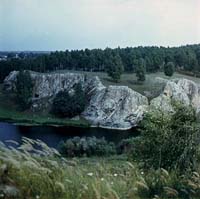
3. Will you match the towns and the field of industry this or that town is famous for?
-
Buguruslan a) Non-ferrous metallurgy, non-ferrous ore concentrating plant
-
Buzuluk b) Chrome compounds plant which produces chrome oxide,
sulphurous sodium, chrome phosphate. Produces building materials
-
Gay c) Heavy-mechanical engineering for oil, gas and agricultural
industries
-
Mednogorsk d) A centre of processing agriculture products into a range of
foodstuffs
-
Orsk e) The mill complex and enterprises of manufacturing a range
of consumer goods and foodstuffs
-
Sorochinsk f) The ferrous metallurgy flagship of the region
-
Kuvandyk g) A symbol of massive oil industry
-
Novotroitsk h) Copper-and-sulphur works that produces rolled non-ferrous
metals, such as nickel, brass, copper. Besides here the
electric equipment is produced.
Glimpses of Orenburg Region Industry, Agriculture and Economy
Being one of the subjects of the Russian Federation Orenburg region is unique in its potential, as according to the words of the famous Russian academician Alexander Fersman "There isn't any other land in the whole world whose bowels are so huge and the prospects are so tremendous"
2500 deposits numbering over 75 kinds of natural resources include gas, oil, brown coal, ferrous and non-ferrous metals, copper, pyrite and iron-ores, rock salt, asbestos, marble and jasper. Almost all of them are of industrial significance. The gas-and-condensate deposit, with the capacity of about 6 % of all the country gas reserves, is a subject of a special significance and is considered to be the largest in Europe. Orsk jasper is revered for its variety of natural design and colours. All colours are except for blue are represented in this stone. The region has considerable reserves of cement and ceramic clay, gypsum and chalk.
The riches of the regional bowels influence the economic development of Orenburg region and its industries. Metallurgical industry is one of the oldest in the region and based on the rich local deposits. Mining and processing of metals are concentrated in Magnitogorsk, Gay, Novotroitsk, Kuvandyk, Svetly and Orsk. Orsk is called the ferrous metallurgy flagship of the region. Nation-wide importance has ferrous and non-ferrous metallurgy, mechanical engineering, chemistry, and oil refining centres as well.
Orenburg region is one of the leading regions of European part of Russia. There are more than 3, 000 enterprises on its territory, 250 of which are of great significance. As Orenburg is the centre of gas production it is a home for several companies such as Orenburggasprom and Orenburgneft. There is also a fuel-and-energy complex of Orenburgenergy, one of the biggest energy generating companies in Russia.
Ural economic region has a diverse and complex structure of machinery and metal industry. Machine-building plants which were created in Orenburg region are successfully functioning here. They produce tractors and equipment for oil industry in Orsk, machine-tools, radiators and electric engines in Orenburg and Buguruslan, machines for ferrous and non-ferrous metallurgy in Buzuluk, so the range of the region's export is wide.
Orenburg region is one of the major agricultural areas of Russia. Its climate is favourable for farming: humid spring, dry summer and a large number of sunny days make perfect conditions for cultivating hard wheat and rye, sunflowers, potatoes, peas, beans, corn, melons and water-melons noted for high sugar content. Orenburg climate makes it possible to grow vegetables and gourds in the open ground. Orenburg wheat is famous for high protein content and appreciated in the world markets. The agricultural area in the region makes 11,000,000 hectares.
Orenburg region is the northernmost zone in which grapes can be successfully grown. Agriculture of the region is famous not only for grain, but stock breeding as well.
The region supplies not only its own needs but exports a lot to other parts of Russia.
Business and trade contacts have been established with more than 80 countries, among which are Austria, Germany, Bulgaria, Hungary, Slovakia, Israel, Great Britain, the USA, Canada, Turkey, New Zealand, Belgium, the Netherlands, Finland, Italy, China, Japan and others.
-
Read the following sentences from the text above and mark T (true) or F (false). Correct false statements.
1. Orenburg region is famous for its number of natural deposits.
2. Orenburg gas-and-condensate deposit has a capacity of about 8 % of all the country gas reserves.
3. Even blue colour is represented in Orsk jasper.
4. Novotroitsk is called the ferrous metallurgy flagship of the region.
5. Orenburg climate is impossible for growing vegetables.
6. Orenburg region is one of the major agricultural areas of Russia.
7. Orenburg region has economic and business contacts with many foreign countries.
EXAM ZONE
Read attentively each line of the text and mark whether it is correct or not. There are examples in the first two lines.
Downy Shawls
Downy shawls were in the popular demand. _____________________________the
Since the beginning of the XIX century they had become the essential part ___________+
of the women's costume. The wives of a peasants, merchants and ___________________
aristocrats wore them. A lot of many merchants came to buy shawls _________________
and sell it them on Russian bazaars and fairs. Sometimes downy shawls ______________
knitting provided the main profit of the population. _______________________________
As well as two hundred years ago everything is done by hand even now. ____________
Nothing could replace women's hands. The secrets of the craft are learned _____________
from the early childhood. The first thing the future knitters learn is that what ___________
the down loves kindness: the more better you clean and comb it ______________________
the thinner the thread will be and the shawl will be even. ___________________________
The girls begin to knit on at the age of seven or eight and they don't _______________
part with the knitting needles till the old age. They work so hard that they ______________
have had a corn (мозоль) on their right hand forefingers because as they _______________
about 0,5-0,6 kg of downy yawn while they are knitting a middle-sized _______________
shawl.
When the shawl is ready it is washed and dried on the frame. Nowadays _____________
it is not a problem. But in the last century when as the shawls were very large ___________
(up to 2 meters) it was were difficult to stretch them inside the house. _________________
So they were sold without washing and drying. Only small shawls, which ______________
were called "katenki", were washed and dried at home on the ceiling __________________
(up to ten at a time). The rooms have became lighter and didn't bring __________________
discomfort to anybody.
Symbols of Orenburg Region

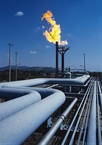

UNIT 1
STEP 4
Rivers of Orenburg Region
Pre-reading tasks
Before you start to read answer these questions:
-
What do you know about the Ural, the main river of Orenburg region?
-
What other rivers are on the territory of Orenburg region?
-
Which towns of Orenburg region are situated on them?
-
Do rivers of Orenburg region play an important role in its industry and agriculture?
-
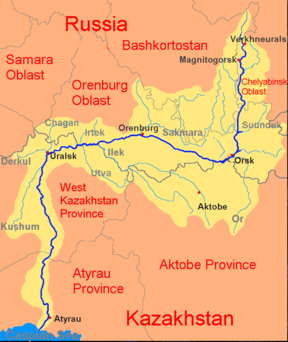
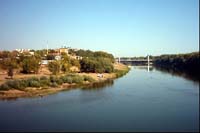
The River Ural is the main river of Orenburg region
The total length-2,428 km Basin area -231, 000 square kilometers The main tributaries-the Ilek, the Sakmara, the Or Arises in the southern Ural Mountains Flows into the Caspian Sea
D
The Ural, known as the Yaik before 1775, is a river flowing through Russia and Kazakhstan. The total length of the river which is 2, 428 kilometers makes it the third longest river in Europe after the Volga and the Danube. Along with the Volga, the Ural River is the major river feeding the Caspian Sea. The Ural River has many tributaries, the major of which are the Ilek, the Sakmara, the Or. The river forms part of the traditional boundary between Europe and Asia.
Since the ancient times till nowadays the Ural has changed its name more than ten times, among which were the names of the Likos, the Daiks, the Daikh, the Rusa, The Yagat, the Yagak, the Ulusu, the Yaik, the Zapolnaya River (means "behind the field") and others.
And what about the present name of the Ural? May be it is connected with the name of the region itself as from the 11 th century the region of the Ural Mountains was called "The Stone Belt" by Russians. But in the middle of the 16 th - early 17 th century, the southern parts became known as Ural, and this name spread on the whole area later. The name probably originated from Turkic "aral" which means "island" and was used for any territory different from surrounding terrain. From the 13 th century, in Bashkortostan there appeared a legend about a hero named Ural. He sacrificed his life for the sake of his people and they poured a stone pile over his grave which later turned into the Ural Mountains. So the river flowing on the territory of the Ural Mountains also got the name of the Ural. It's really a beautiful name but it's interesting to know the other names as well because it's a part of our native place history.
ifferent Names of the Same River
3.Read the following sentences from the text above and mark T (true) or F (false). Correct false statements.
1. Before 1775 the Ural was known as the Yaik.
2. The total length of the river makes it the second one in the Europe after the Volga. 3. The Ulusu is one of the ex-names of the Ural River. 4. Many years ago the region of the Ural Mountains was called "The Stone Belt" 5. The name of the Ural means "the sea" in Turkic. 6. The legend about a hero who sacrificed his life for the sake of his people appeared in Kazakhstan at first. 7. The Ural River flows into the Black Sea.
-
Which adjectives are used with these nouns in the text? Make up your own sentences with the words or the words collocations
river, boundary, times, name, terrain, place, length
-
Write down the opposite words to the following ones. Find the sentences with these adjectives in the text
Beautiful, present, the longest, ancient, native, southern, different, interesting
-
Do you know that there are more than 290 rivers on the territory of Orenburg region? Choose one of the rivers of Orenburg region and find out its main features similar to the fact-file about the Ural River
Bolshoy Ik 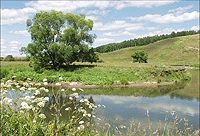
Sakmara 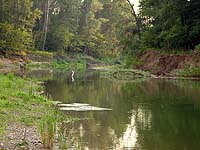
Dyoma 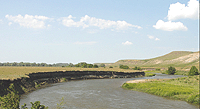
Samara 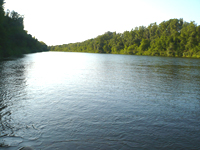
Or 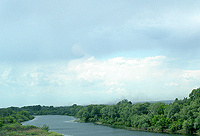
UNIT 1
STEP 5
Climate and seasons
Don't knock the weather;
nine-tenths of the people
couldn't start a conversation
if it didn't change once in a while.
Hubbard, Kin

 Seasons Flora and fauna
Seasons Flora and fauna
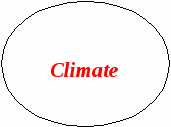

 Health Weather
Health Weather


Clothes Traits
Vocabulary
Active
Passive
cool, degree, low / high temperature, occasional rain, storm / stormy, wet, cloudy, cold, foggy, hot, snowy, sunny, windy, warm, damp, desert, dry, humid, heavy rain, mild, continental, droughts, long winters
be expected, changeable, at least, lasts for, affect the health, influence people's lifestyle, mood and character, to be active and noisy, to be calm and rigorous, to have a negative / positive impact on, hot climate of Orenburg steppes
Work in pairs and discuss the questions.
1. What words would you choose to describe the climate of Orenburg?
2. In 460 - 377 BC the Greek physician Hippocrates noted the climatic influence people's well-being. What do you think? Is Orenburg climate favorable for our health?
3. Do you agree that Orenburg with its unique atmosphere influences people's lifestyle, mood and character?
Reading. 1. Do you agree or disagree with the following statements? Tick one. True False
a
 ) Winters are extremely cold in Orenburg.
) Winters are extremely cold in Orenburg.
b
 ) Blizzards happen during chilly winters
) Blizzards happen during chilly winters
c
 ) June is the warmest month.
) June is the warmest month.
d
 ) Droughts are typical of the summer period
) Droughts are typical of the summer period
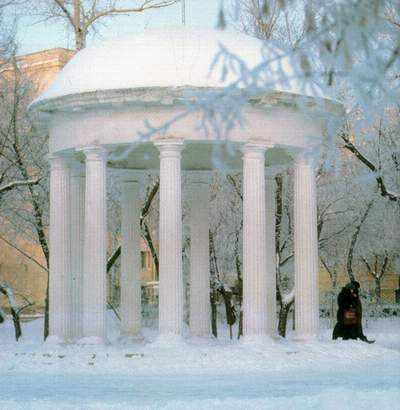
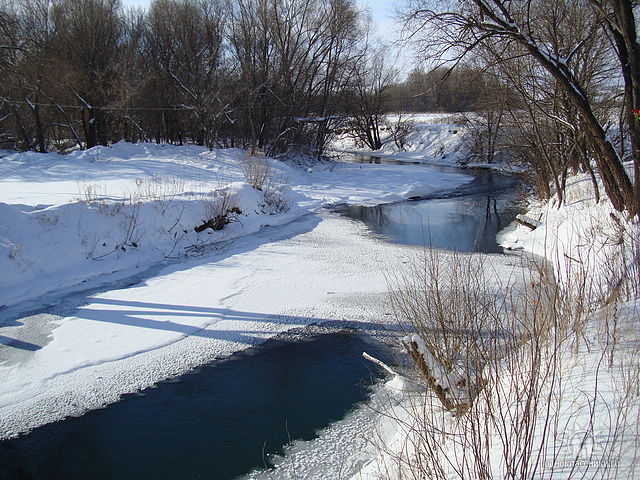
Winter in Orenburg Spring in Orenburg
2. Read the text below to see whether your answers were correct.
The climate, seasons and weather
The main features of Orenburg's climate are defined by its remoteness from the ocean. Being in the depth of the Eurasian continent, it is deprived softening influence of sea air weights, therefore Orenburg has a continental climate. Meteorological observations show that July is the warmest month with a 22 C mean temperature and frequent droughts and January the coldest, averaging -16 С. The average temperature for the year changes from 4 C till 1,5 C.
Study the chart with average monthly temperatures (in C) and say how long winters are in Orenburg.
January -16,8
May 15,4
September 14,6
February -10,9
June 21,1
October 5,99
March -5,92
July 22,9
November - 3,47
April 5,88
August 21,0
December -9,75
Long lasting weather data indicates that the snowy season generally lasts from the beginning of November to the middle of April, but there have been winters with very little snowfall. Nevertheless blizzards happen during chilly winters sometimes. The windiest times of the year are during autumn and winter, with north, northeast, northwest winds predominating.
Orenburg weather is defined as being rather changeable. It's not unusual for the temperature and the atmosphere pressure to take a nosedive or for the wind velocity and direction to change drastically - all in one day. Different areas in the region can differ in temperature by up 8 - 10 C.
3. What is the origin of Orenburg's continental climate?
What is characteristic about the climate and weather in Orenburg?
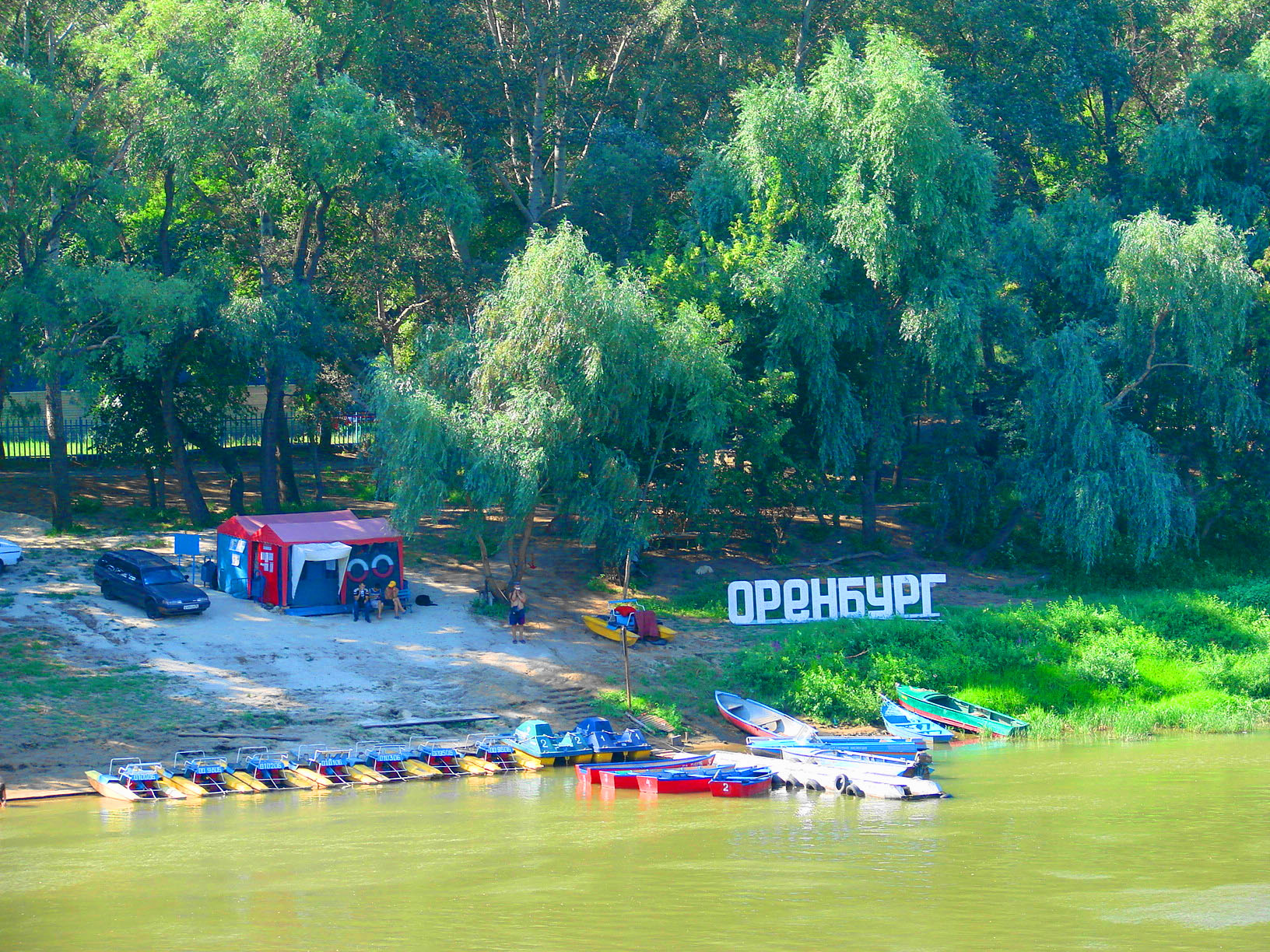
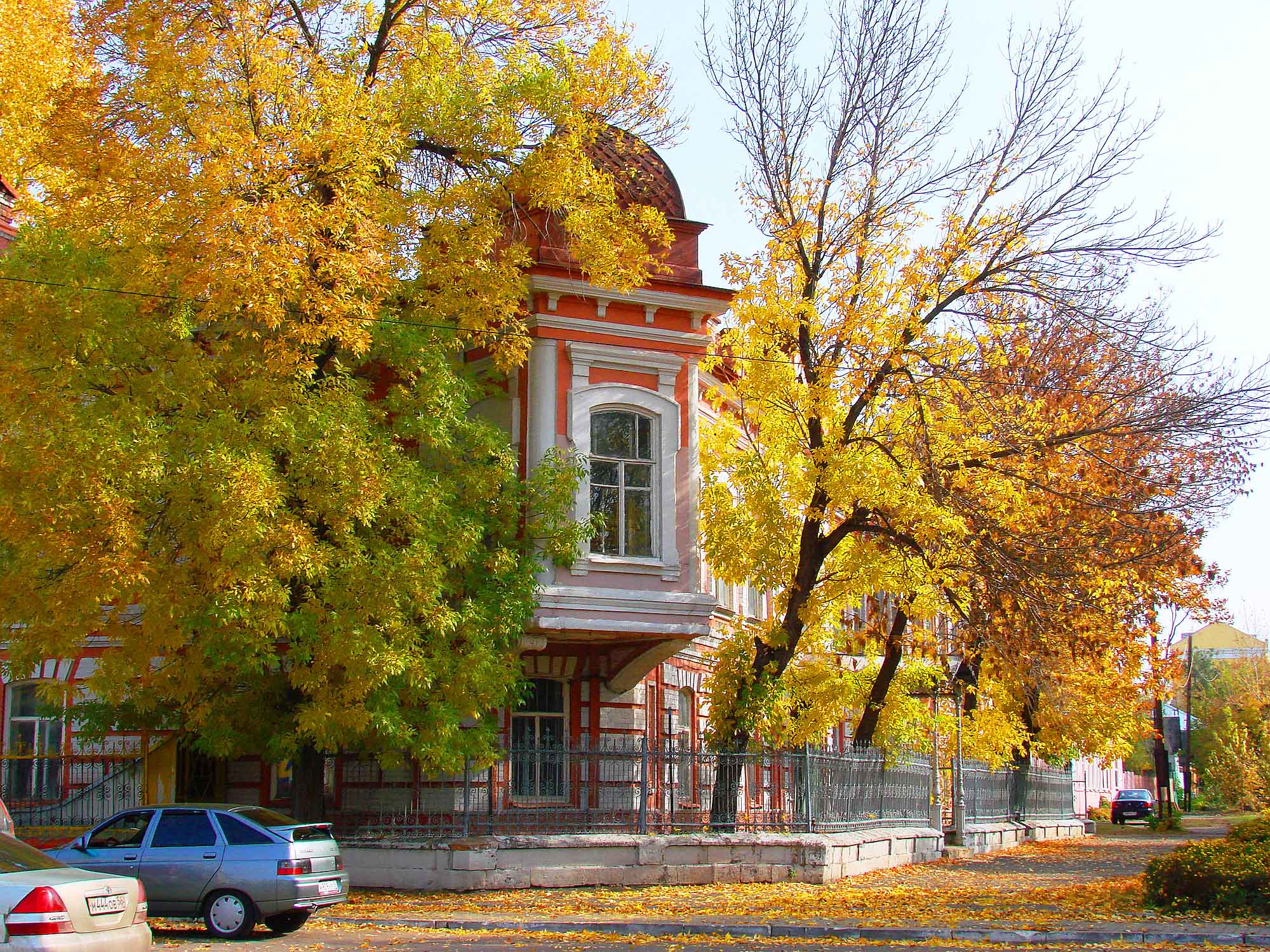
4. Role play. Imagine that you are a competent weatherman working for Orenburg radio. Study the map and the chart, elicit the weather forecast for Orenburg region and report it to the listeners.
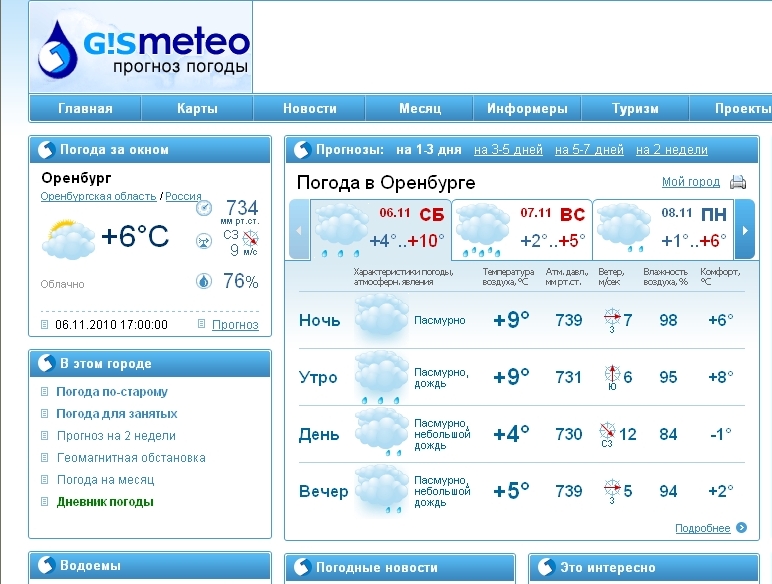
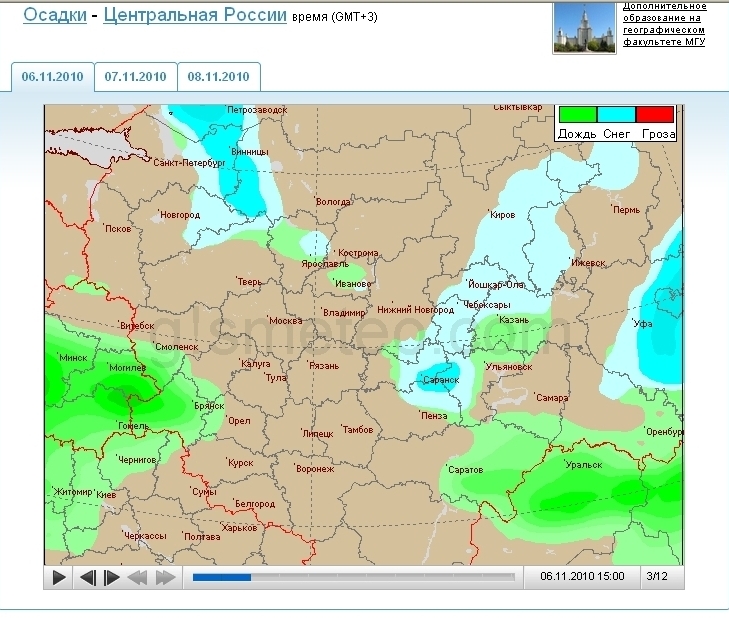
5. Express your ideas.
What is your favourite season and why? What season do you like least? Why?
6. The best way to invite a foreigner to visit our region is to describe what the place is like in different seasons and what he / she can do in this place in different seasons. Write a letter to your pen-friend abroad and give him/her recommendations about clothes, footwear and entertainments during different seasons.
7. Use the correct form of the words from the right column to complete the text «Flora and fauna of Orenburg region».
The nature of Orenburg region is quite_________. vary
The herbaceous_______ dominates here. vegetate
Forests _________ only about 4% of the total area and coverage
represent an amazing ________ of pine and mix
deciduous forests, such as pines, oaks, maples, birches, poplars, etc.
Steppe vegetation________ by the typical plants represent
of these places: feather grass, sagebrush, thyme, etc.
There is a considerable _________ of rodents vary
in the local fauna: gophers, marmots, polecats. The region is
________ home to more than 270 species of birds. current
Bustards, eagles and other species are ________of inhabit
Orenburg region. Wolves, foxes, badgers, hares _____ meet
in the animal world. A lot of species of rare animals, insects and plants
________ in the Red Book of Orenburg region. list
8. Miscellanious
D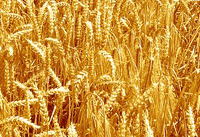 o you know that the solar radiation and the lack of moisture which are typical of the Orenburg climate contribute a lot to the formation of the high-quality grain? The Orenburg wheat is recognized as one of the best in the world. It was awarded the gold medal on the London Stock Exchange in 1862. The quality of our grain is determined by the high protein content - up to 20%. Therefore, the wheat flour is used for making the high-quality pasta and in the confectionery production.
o you know that the solar radiation and the lack of moisture which are typical of the Orenburg climate contribute a lot to the formation of the high-quality grain? The Orenburg wheat is recognized as one of the best in the world. It was awarded the gold medal on the London Stock Exchange in 1862. The quality of our grain is determined by the high protein content - up to 20%. Therefore, the wheat flour is used for making the high-quality pasta and in the confectionery production.
UNIT 1
STEP 6
STRATEGY OF WORKING AT PROJECT
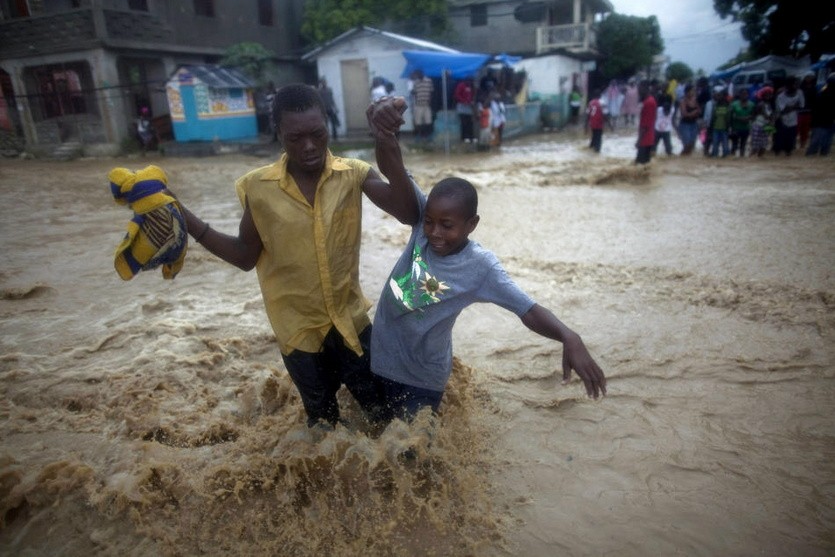
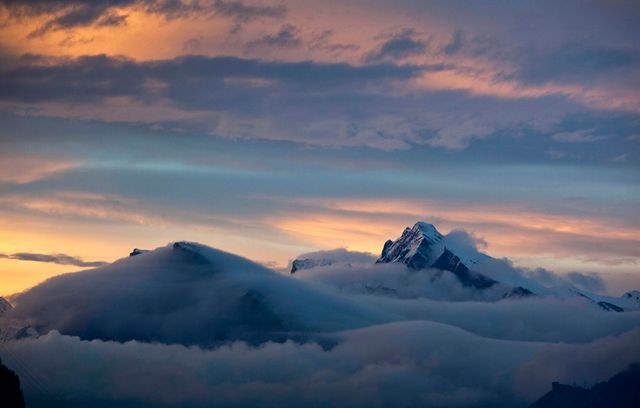
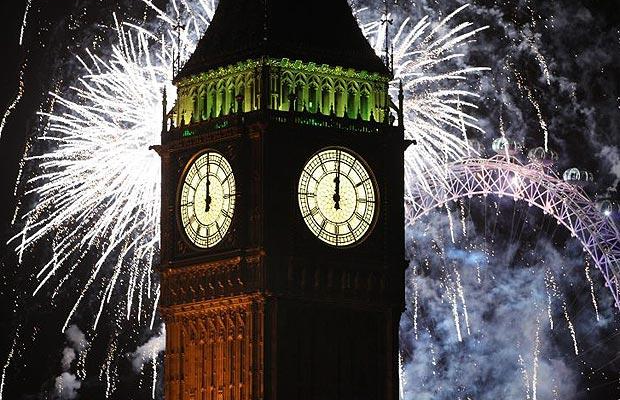
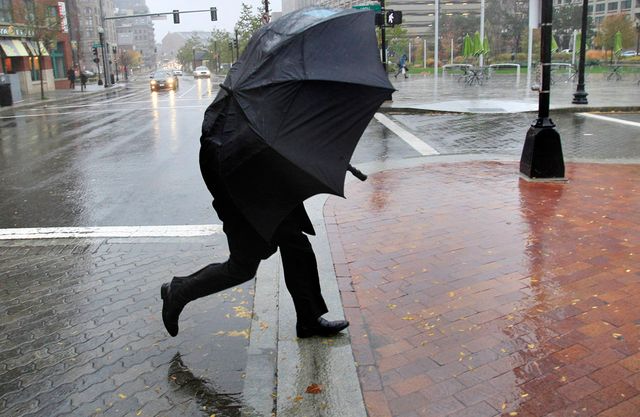
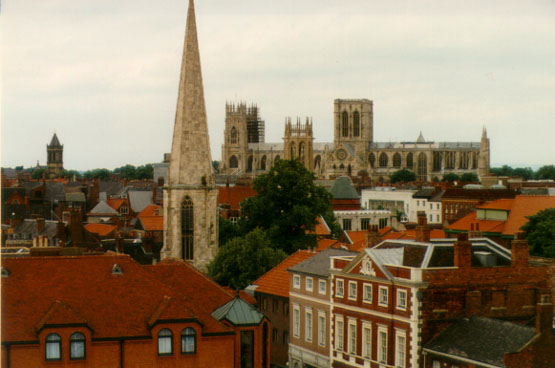
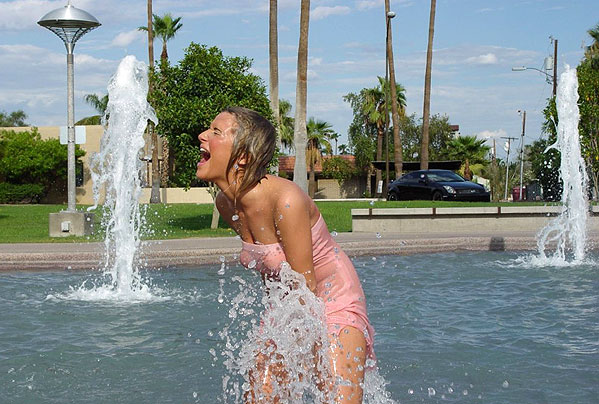
-
Ask Pp to look at the pictures and predict what they are going to talk about ( weather in different places around the world).
-
Ask some of the Pp to report about the weather of the day and the weather forecast for the next day.
-
Before doing the exercise ask Pp to find different cities on the map and practise saying their names. Then ask them to find places with low / high temperatures.
-
After this preparation Pp practise asking and answering questions about the weather in different places.
-
Ask Pp to look at the map, read the weather forecast and fill in the gaps.
-
Pre teach occasional rain, is/are possible and is/are expected if necessary. Eg. You might want to explain that occasional rain is the rain that happens from time to time.
-
Ask Pp to listen to the radio or read a local newspaper and write the weather forecast for their region.
uchportal.ru/load/94-3-12
-
How does geographical position influence the people's lives?
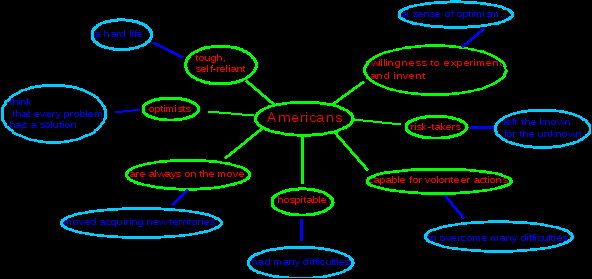
-
Translate from Russian into English
Короткие, теплые зимы без снега; засуха; сильные ветры; туман; суховей; большое количество солнечной радиации; солнечные бури; ураган; нормальная влажность; сильные морозы; атмосферное давление; град; пыльная буря; затяжные дожди; нормальное атмосферное давление; заморозки; гололед; магнитные бури; отсутствие сильных ветров; суровые длинные зимы.
Introduction
Explain to Pp that they are going to do a project and advertise a place to go to on holiday. You might prefer to use Russian at this stage. Advise them to decide on the country they are going to advertise and prepare pictures, photos etc in advance.
1 Preparation
-
Before doing the project, go through all the instructions together with Pp and explain anything that is not clear.
-
Elicit a summary of how to work in Russian.
2 Activity
a) Make groups of four.
b) Let each group choose a country.
Suggestion:
Write the names of the countries on strips of paper, ask a P from each group to choose one.
-
Ask Pp to study the role cards.
-
Explain that each P in the group should be responsible for his / her part of the work: the meteorologist collects data about the climate and weather in the place; the archaeologist finds the information about the historical sights in the place, the photographer and the tour guide prepare pictures and the information about the most popular activities.
-
Remind Pp that they are expected to talk in English during this stage. Provide help with the language as necessary.
-
Set a time limit of 15 minutes to finalise the poster.
3 Presentation
-
Give five minutes for Pp to rehearse their presentations.
-
Invite groups to present their posters and reports in front of the class. Remind the other Pp that they will have to decide which is the best place to go on holiday.
-
Do not interrupt Pp if they make grammatical or any other mistakes while they are presenting.
-
Encourage the rest of the class to ask presenters for more information.
4 Follow up
After the presentations ask Pp to vote for the place they would like to go. Explain that they are not allowed to choose the place their group presented. Based on the results of the voting announce the most popular place to go on holiday.
-
This project can be also prepared and presented with the help of ICT
Equipment: A workplace for each group of Pp, digital projector, computer.
UNIT 1
STEP 7
Orenburg Region-Climate and Weather
The climate of Orenburg region is continental with wide seasonal variations. In winter temperatures can reach -41-45 C with an average temperature -24 C. The coldest month is January. The coldest winter was in 1942 when the lowest mark reached -49C. Snow covers the ground at the end of November and begins to melt in the middle of April. The height of snow cover is about 22-50 centimeters while sometimes it may be up to 110 centimeters. Due to the western and southern cyclones there are a lot of blizzards with stormy winds, wet snow and even rain. The western part of the region gets more snow and rain in general.
There is no bad weather, there are bad clothes
-
Which is your favourite season and why?
-
Can you tell about your favourite season?
-
What do you like to do in your favourite season?
The nature has given Orenburg region three main colours: deep green in spring, golden in autumn and snow white in winter.
As for summer it is bright thanks to our people who try to decorate their native place making up flower-beds with gorgeous flowers everywhere. And it really enjoys everybody's eyes because Orenburg region has about 120 days for tourism and about 70 days for swimming.
Humid spring, dry summer and a large number of sunny days is favourable for farming and gardening.
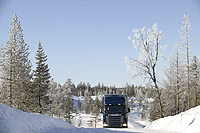
These words will help you to tell about your favourite season temperature
weather (warm, hot, snowy, rainy, gloomy, sunny)
go for walks
do sports
play sports
wander around
meet friends
enjoy fresh air
enjoy landscapes
wonderful scenery
countryside
swim / ski/ skate
hustle and bustle of the city life
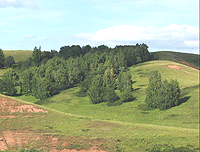
UNIT 1
STEP 8Climate change. Ecological Problems of Orenburg region.
Comment on the following statement.
«If you don't think about the future, you will not have it».
J. Galsworthy
1. Match the words, their definitions and the pictures.
1) The introduction of contaminants into a natural environment that causes instability, disorder, harm or discomfort to the ecosystem i.e. physical systems or living organisms.
2) They occur naturally within environments that exist relatively undisturbed by mankind, in a natural form.
3) The increase in the average temperature of Earth's near-surface air and oceans since the mid-20th century and its projected continuation.
a) natural resources b) global warming c) pollution
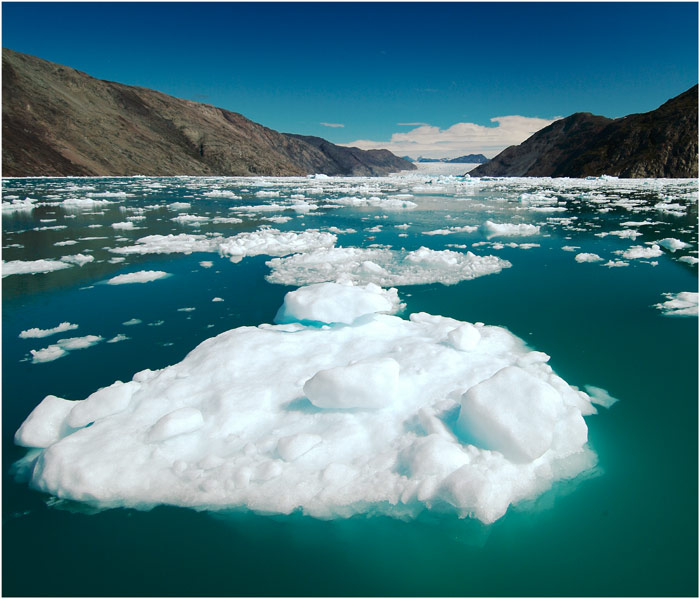
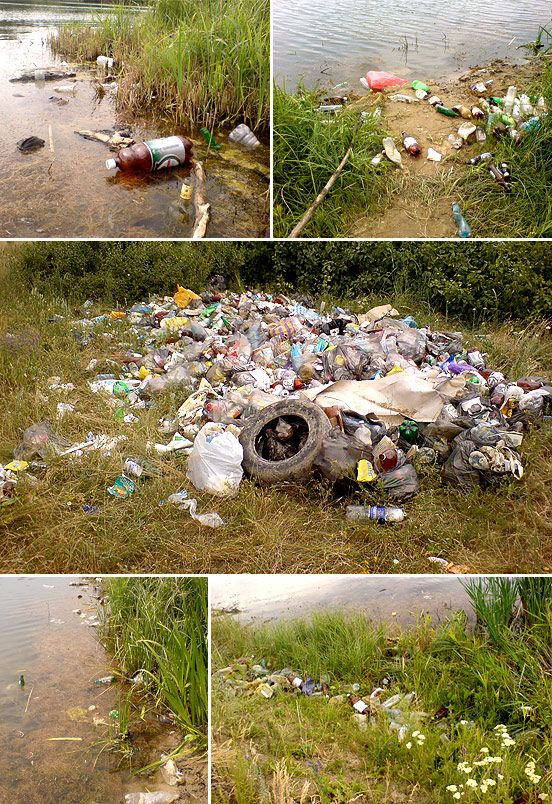
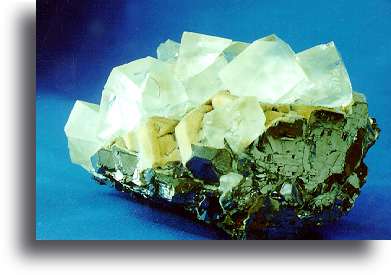
Exam Zone
2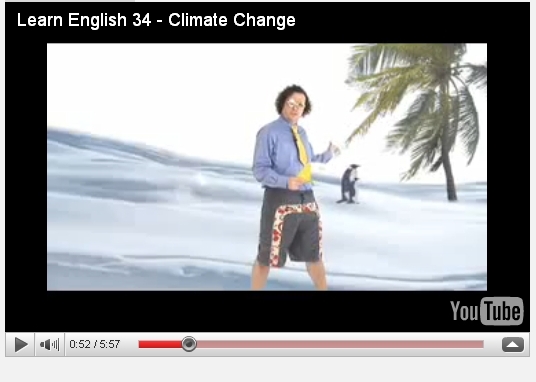 . Listen to the dialogue between an American professor researching the processes of the climate change and the young journalist. Define if these facts below are true, false or not stated.
. Listen to the dialogue between an American professor researching the processes of the climate change and the young journalist. Define if these facts below are true, false or not stated.
englishvideo.ru/videouroki-ot-ef/izuchenie-anglijskogo-yazyka-34-izmenenie-klimata.html
1. Global warming is the process of the earth's atmosphere heating up.
a) True b) False c) Not stated
2. When we burn natural resources like coal and gas, the Earth heats up.
a) True b) False c) Not stated
3. Natural gases in the atmosphere form a blanket and prevent heat from escaping (like the glass in a greenhouse).
a) True b) False c) Not stated
4. The sea level will rise above its current level if more polar ice melts.
a) True b) False c) Not stated
5. Climate change doesn't effect on agriculture at all.
a) True b) False c) Not stated
6. Some experts argue that the short-term global warming will lead to a more catastrophic long-term global cooling.
a) True b) False c) Not stated
7. Solar power plants contribute to global warming a lot.
a) True b) False c) Not stated
8. We must reduce dirty factories and cars to slow the process of global warming down.
a) True b) False c) Not stated
L isten to the conversation again and complete the mind map.
isten to the conversation again and complete the mind map.












Look at the diagram and say how have global surface temperatures increased since the late-19th century?
Language in use.
C omplete the text with the correct words and expressions from the box.
omplete the text with the correct words and expressions from the box.
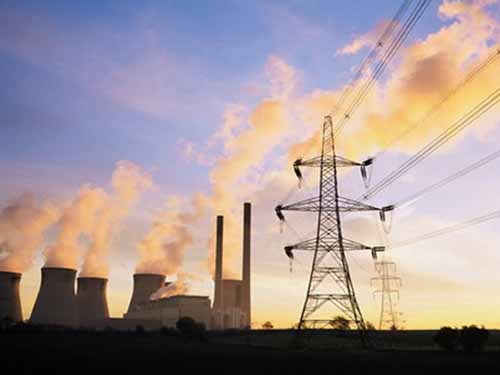
Ecological situation of Orenburg region
Ecological situation in Orenburg is considered_________(1). The city occupies the first place in the list of the most environmentally polluted cities of Privolzhsky Federal District and the eighth - of Russia.
The ecological situation in the region made people think seriously about the principals of ___________ (2). According to the data, some 900, 000 tons of __________ (3) are discharged every year into the air. Major ______ (4) of atmosphere pollution in the region are various enterprises from metallurgic, oil and gas industries, as well as vehicles. Here carbon oxide and nitrogen dioxide dominate among _________ (5). Another problem for this territory is the dust content in the air. That's why the number of such diseases as cancer and allergy is constantly _______ (6) in Orenburg region.
The bulk of water pollution comes from _________ (7) of housing and communal services. Nitrogen, copper and zinc are among dominated water pollutants. This type of pollution also characterizes the impact of chemical industry and agriculture. As a result, the level of the Ural _________ (8) 3 meters, the growth rates of the Ural fishes have slowed down.
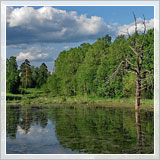
Besides, forest fires ________ (9) valuable wood, wild life, good soil and natural landscapes. There were a lot of forest fires in Orenburg region in 2010. Forests are disappearing and this upset the oxygen_______ (10).
Thus serious _______ (11) to protect the environment should be taken. The role of the Orenburg public in the solution of ecological problems has greatly increased. The citizens initiated some environment protection ________ (12).They are first of all, The Ecology Protection Committee and the Interstate committee on Saving the Ural. All the scientists and committees _________ (13) an effective plan of measures, necessary to improve the ecological situation in Orenburg region.
Express yourself
Let's try to define the factors which effect the ecological situation in Orenburg region (Ponomaryovsky district)? What diseases do many people suffer from in Orenburg region? In your opinion, what could influence on improvement of ecological situation in region?
Miscellaneous
I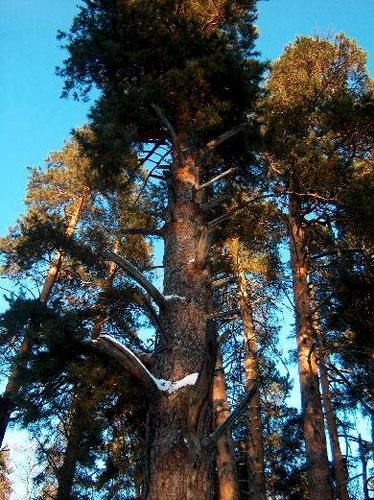 n the Orenburg region near the village of Koltubanovsky is a relic forest - Buzuluksky. Buzuluksky Forest is a contestant of «7 Wonders of Russia». More than ten places of Buzuluk forest have the status of monuments of nature - it «Relict Pine», «pine forest M.G. Tsapkin», «tercentenary Pines» and others. Nature Reserve covers an area of 56 600 ha in Orenburg region.
n the Orenburg region near the village of Koltubanovsky is a relic forest - Buzuluksky. Buzuluksky Forest is a contestant of «7 Wonders of Russia». More than ten places of Buzuluk forest have the status of monuments of nature - it «Relict Pine», «pine forest M.G. Tsapkin», «tercentenary Pines» and others. Nature Reserve covers an area of 56 600 ha in Orenburg region.
About 7 thousand years ago there appeared at first island pine and birch forests. Subsequently, there was a solid pine forest undergrowth in deciduous plants. Pure pine forest arise a nearly 3-4 thousand years ago. At that time the climate was more humid. In Bor, there were large numbers of deep lakes and boggiest quagmire. Later - in the second half of XIX century and beginning of XX century - there were massive drying of the reservoirs, leading to changes in natural conditions of boron. None of forest in Russia are not subjected to such detailed study. More than 100 years, it is the correct Forestry. Mastering Buzuluk forests started at the end of XVIII century. Buzuluksky Forest counts 39 species of mammals, 144 species of birds, 8 species of reptiles, 23 species of fish and 800 species of insects. The main attractions of forest are two pine trees aged 300-350 years. One of these pine trees has a height of 30 meters and a diameter of 145 centimeters.
Say what makes Buzuluksky Forest so unique?
R ole Play
ole Play
A lot of articles are appearing in newspapers. There are special movements for environmental protection; "Green Peace" is among them. A lot is being done at the government level. But all the decisions taken should be based on scientific research. That is why conferences on ecological problems are very important not only for specialists but to the public as well. An International Conference, "The Environmental Problems Today", will be held in Orenburg.
Participation. You can use your own name if you like prepare your business card (first name, last name, profession, address, telephone number, the institution you represent).
From the list choose one of the topics which you are especially interested in. (If necessary you can add your own). Topics: air pollution, water pollution, pollution in cities, pollution by industries.
Read the invitation you have received and fill in the registration form.
The Environmental Problems Today
25-27 May 2011
The conference is designed to give you the information you need about important issues of environmental protection for your industry. The conference will provide you with solutions to your questions. You will also get a chance to address the audience on challenging issues of ecology. Please send your registration card and a summary of your report.
Registration Form
(The place for your photo) I would like to register for "The Environmental Problems Today"
Please complete and return to:
Name (Mr/Ms) ____________ Position____________Firm/company_______The name of my report____________ Address____________City________________ Post code___________
Country____________ Telephone__________Fax___________
Please register me for the conference. I have enclosed my check for $ 200 made payable to: Global Forum. Please add me to your mailing list.
The conference language is English. Topic. Summary.Keywords.
Prepare the text of your report, visual aids, handouts and the necessary equipment using either the materials given or those which you can find yourself.
On your arrival at the conference find the programme and make your report. Listen to other speakers. Put at least three questions to some of them.
Project work
1. It's common knowledge that personal traits of people of different countries are a result of the influence of Climate, geography and environment. Try to define the level of their impact on the image of the modern resident of Orenburg.
2. Make an opinion poll and find out what people think must be done to make the ecological situation of Orenburg better?
1. To get the plants and factories out of the city.
2. There must be much more green plants in the city.
3. The traffic must be limited.
4. We can do nothing already.
5. I do not know.
UNIT 1
STEP 9
Wildlife of Orenburg Region
Pre-reading task
1. Landscapes of steppe can be different. Do you agree? Look at these photos and tell if the scenery is the same or not? What type of landscape can you imagine yourself one day and why?
2. Can you recollect songs, stories or poems by our Russian writers and poets where the steppe was mentioned?


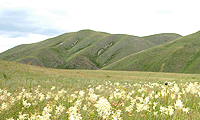
Ashisaisky steppe Burtinsky steppe Aituarsky steppe
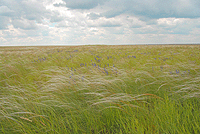
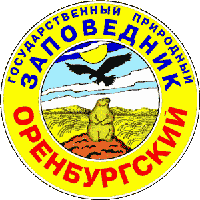
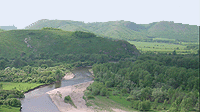
The landscapes of Orenburg region are dominated by steppes and one can think that nothing can be seen here except feather - grass, though it's not true because there are many rare animals, birds and plants which you can see only in Orenburg steppes and which must be protected and preserved for next generations. Orenburg flora and fauna are extremely rich.
The trout and umber are splashing in its foothills streams. The beluga and sturgeons come to the Ural River from the Caspian Sea for spawning and stay here for winter.
Quick saigas are running in the sundried steppe behind the Or river. Brown bears and lynxes inhabit the forests of Shaitantau and Maly Nakas.
That's why according to the law on protected areas of Russia there was Orenburg State Zapovednik founded on May, 12, 1989. Its total area is 21, 700 hectares. Zapovednik consists of 4 sites of hills and steppe in the southern Urals and represents by "Talovsky steppe" in Pervomaysky district, "Burtinsky steppe" in Belyaevsky district, "Aituarsky steppe" in Kuvandyksky district and "Ashisaisky steppe" in Svetlinsky district. One can find 193 species of birds, 7 species of fish, 6 species of amphibians, 48 species of mammals. Some of them are in the Red Book.
The world of plants is also diverse; about 1350 species of plants are registered on the territories of Zapovednik, the aim of which is nature protection, ecological education and scientific research.
Talovsky steppe Shaitanau Mountain
Read the text and choose the right variant A, B, C or D which you consider the most suitable.
-
The landscapes of Orenburg region are dominated by steppes________
-
so that's why we can see many different and exotic birds and animals there.
-
so that's why many people think they can spend a wonderful holiday there hunting animals and fishing in foothills streams.
-
so that's why one can think there is nothing there except feather - grass.
-
so that's why many people take a trip there to have a look at the scenery
-
-
We must protect Orenburg unique steppes because ___________
-
many people have never seen feather - grass in their lives.
-
many people want to do the farming there due to rare animals and birds.
-
flora and fauna are extremely rich there.
-
many people like to take pictures of the steppe.
-
-
Zapovednik founded in 1989 consists of _______
-
3 sites of hills and steppe in the southern Urals.
-
4 sites of hills and steppe in the northern Urals.
-
5 sites of hills and steppe in the southern Urals.
-
4 sites of hills and steppe in the southern Urals.
-
-
The aim of Zapovednik is ____________
-
to turn its area in the tourism industry.
-
nature protection, ecological education and scientific research.
-
to take care only of those species of animals, birds and plants which are in the Red Book.
-
to attract as many people as possible to visit Zapovednik.
-
Work in pairs
Tell your classmate about three things you've known for the first time after reading the text.
Project: Try to find interesting facts about Zapovednik or animals that live on its territories.
UNIT 2
STEP 1
Orenburg architects
H. Gopius
A.P. Brulov
A.A. Yashenko
Famous people
V.A. Peroffsky
P.I.Rychkov
I.I.Nepluev
Orenburg.
The History of its Name.
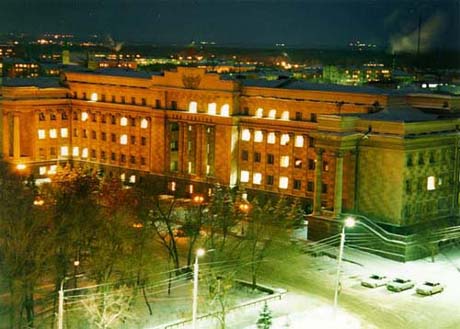
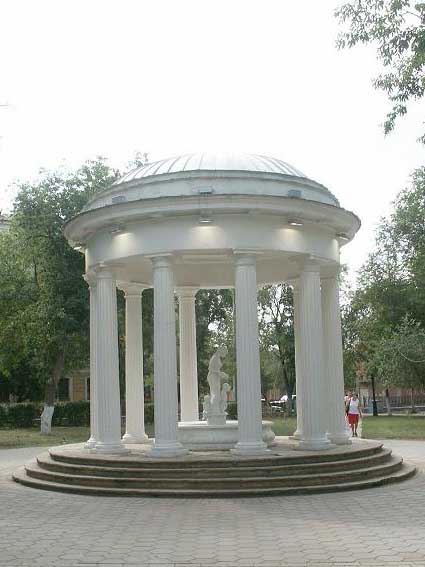
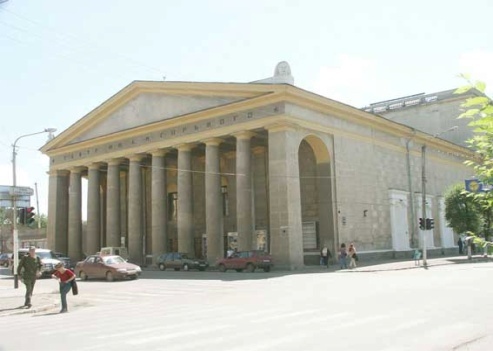
Pre-reading task.
-
Work in groups. Take two minutes to write down as many things as you can that you associate with Orenburg. For example, Drama Theatre, Natural History Museum.
E
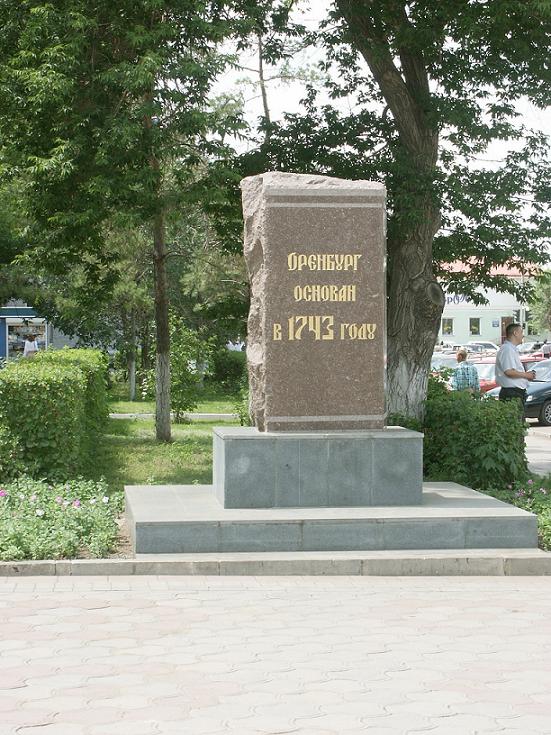 XAM ZONE.
XAM ZONE.
Reading.
Orenburg name history.
The town got its name in 1734.
The origin of the city`s name is very interesting. They say 1__
______________ that the river Or and "burg". "Burg" means
"a town" in German. The version of German origin from the
German word "Ohren" appeared thanks to Empress Anna Ioanovna who was German.
The river Or falls into the Yaik 200 versts higher than Orenburg is located at present. Originally Orenburg was situated at the river Or 2 __________________. People who knows Turkish can 3____________________means "digged over and lined" or "a mouth (устье), a hole, gates"
The first Russian academician Pyotr Ivanovich Rychkov 4__________________ and became a provincial secretary in 1744, giving various interpretations of the meaning of the word insisted on deriving it from the name of the river "Or" + the usual at that time german word "Burg", i. e. "stronghold near the Or river". Such seems to be the official interpretation, 5______________According to that interpretation the word should be not "Oren + burg", but "Or + burg" or have at least a connective "e" between the parts, as it is often in russian words composed of two units. But the presence of "n" is out of the question. That is why it seems more likely that the name of the river must 6_____________________ because of its likeness with the german word "Ohr" - ear, plural "Ohren". Then the composition becomes quite clear: Oren+burg - a stronghold with ears, an outpost on the border with Asia .
Later there was some attempts to rename Orenburg. It was about 100 years ago when during World War I, it was declared the war to everything German. Some of the offered names were really ridiculous, for example, Трезвославль, Пыльград or Единомышль and though once in its history Orenburg 7______________________ our famous pilot Valery Chkalov (1938-1957).
Oreburg citizens are very proud that they live in the city of Orenburg, the history of which is full of interesting facts
-
Read the text again and match the sentences (A-H) to the gaps (1-7). There is one extra sentence you do not need to use.
A. tell that the name of the city
B. it was given after
C. who was a member of the expedition
D. and was called Orskaya fortress
E. but one cannot agree with that statement.
F. one can tell its true
G. was named after
H. have been the starting point
GRAMMAR.
F
The Russian Empire ……… plans for the construction of an eastern frontier fortress town in the southern Ural region to be named Orenburg in 1734. The colonists originally ……… a settlement in 1735 at the confluence of the Ural River with the Or River. The town's name ………"fortress near the Or," as Burg is German for fortress. This settlement changed its name in 1739 to Orsk. An attempt ……..to found another Orenburg about 175 km west at a location…….. Krasnogor, or "Red Hill," in 1741, but this settlement failed. A third Orenburg ………successfully …………by Ivan Neplyuyev at its present location approximately 250 km west down the Ural from Orsk in 1743.ill in the gaps with the correct form of the verbs.
begin
found
mean
make
call
establish
WRITING.
Read the extract from your penfriend Tanya`s letter. Write a letter to Tanya. In your letter:
-
Tell her about Orenburg
-
Ask three question about her trip.

Recently I have visited Moscow. It is a magnificent city with a lot of sightseeing and museums. I was greatly impressed. In summer I`m going to visit Orenburg. Have you got anything interesting to see? Tell me a little about your city, please.
Keys to grammar: began, founded, meant, was made, called, was established
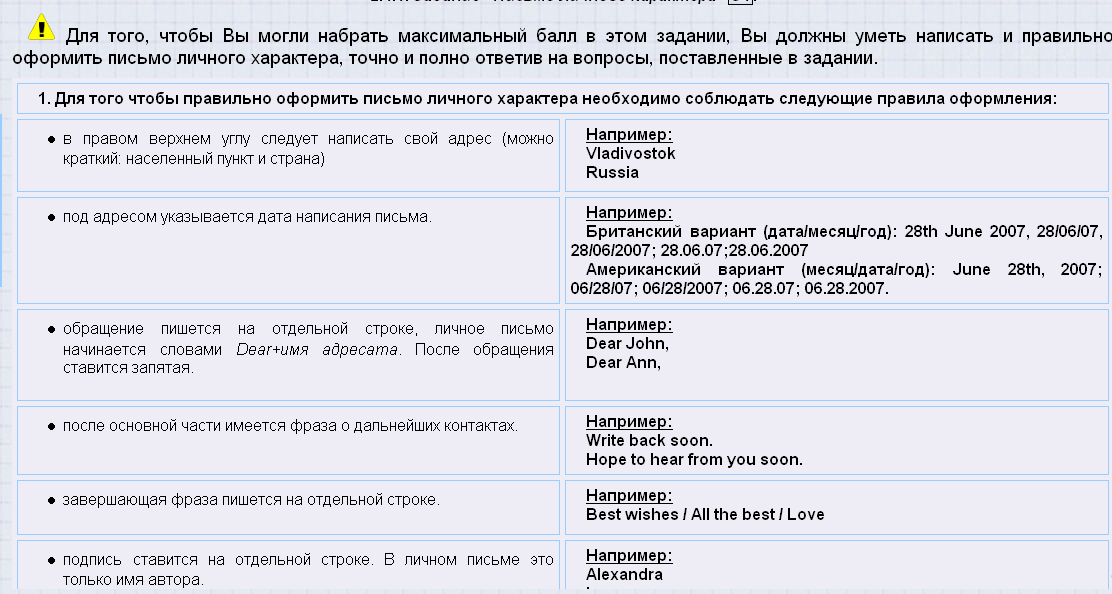

e.g.
20 Chkalova Street Orenburg 460001 Russia (пропуск строки) 8.06.2010 (пропуск строки)
Dear Tanya, (пропуск строки) Thank you for your letter. I should have written sooner but I was busy with my exams. (пропуск строки) Основная часть письма. Ответы на вопросы (пропуск строки) Задать три вопроса. (пропуск строки) Looking forward to hearing from you soon. (пропуск строки) Best wishes, Ann.
UNIT 2
STEP 2
A Picture Is Worth a Thousand Words
Pre-reading task
1. Look at the photograph and answer these questions:
- Where are these buildings?
- Do you like this place?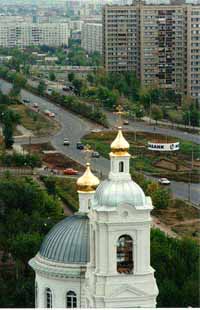
2. Check the meaning of new words in your dictionary or with your teacher.
be found rampart moat bridge
confluence fortress mansion boarder
devide settlement mosque multistorey
subdivide to survive development cottage
3
Note. Follow the next plan:
Introduction. I would like to tell you about the history of my…………
Main body. It was found in………
Conclusion. I both admire and love my native place because ……... Use these words and describe the part of your city or this picture.
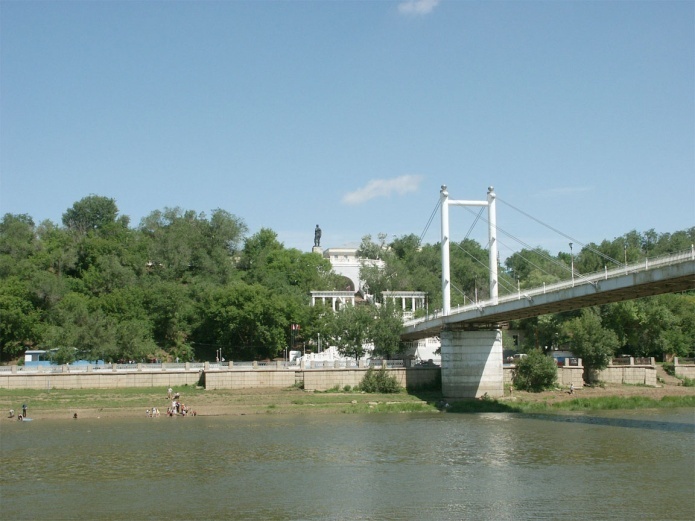
Reading.
History of Orenburg.
Orenburg was founded on the 19(30) of April 1743. Earlier there had been two attempts to found the town in other places. First the corner stone was laid in 1735 near the confluence of the rivers Or and the Yaik, as the Ural was called up to 1775. Then it was in 1741 that they tried to found Orenburg at Krasnogor (Red hill), about 80 km from the present town. And only the new commander I.I. Nepliuyev, decided to place the town where it is now. The history of Orenburg may be divided into three periods if its development is taken as the basis:
1. Town-fortress (1743-1862).
2. Period up to 1941-45.
3. Period up to the 1990s
The first period, may be subdivided into two parts by the Peasant war of 1773-1775 and a great fire of 1786, because after the war and the fire they had to reconstruct more than a half of the town and build new settlements.
Begining with the first years of its existence the town did not remain within the rampart, some of its buildings were placed outside the fortress. The first one to appear outside was a public bath-house. Already in the map of 1745 we can see it to the southwest of the fortress near a lake in the old river-bed. In the following years there appeared butchers shops, brick yards, a brewery and some other buildings mostly to the south of the bath-house.
In the second half of the first period there were many changes in Orenburg both in the fortress and outside it. After the great fire of 1786 a new cossack settlement began to be built to the east of the fortress (the first one had been burned down by the order of governor Reinsdorp, when the pugatchev rebels approached Orenburg in the autumn of 1773). The settlement was named in the German way - Vorstadt The name has survived, a small part of the development as well. To the west of the fortress a settlement of retired soldiers and petty bourgeois people appeared after the Patriotic war of 1812. It received the name "Golubinaya slobodka" (i. e. Pigeon settlement), most probably because it lay near a small lake bearing the same name. By and by the Pigeon settlement changed its name for "Old settlement".
In 1838 a settlement to the north of the fortress began to be built. It was named accordingly "Novaya slobodka" (i.e. New set.).
The beginning of the second period of the development of Orenburg is marked by sharing off the rampart and digging in the moat. The settlements partially connected with the town, but some parts of the former esplanade were left free for gardens and market places.
Considerable changes took place after the Great Patriotic war (1941-1945). 44 enterprises had been evacuated to Orenburg . They gave an impetus to new construction work both industrial and civil. The dwelling houses were usually grouped in settlements near the plants. Another impetus to broaden the development appeared when they began building gas-plants near Orenburg . Practically a new town was built in the 1970s to the north of the pre-war town.
At present the multistorey way of building the town seems to have stopped. In new areas cottages and even mansions are mostly built. Some mansions can be seen in old parts as well. Lately some church and mosque buildings have been returned to the believers and are being restored.
Comprehension check.
1. Are these sentences true (T) or false (F)? Correct the false sentences.
a) Orenburg was founded in 1735.
b) Orenburg was founded near the Red Hill.
c) There are three periods in the development of Orenburg.
d) A lot of houses were rebuild after the war.
e) The impulse for new development of Orenburg was during the Great Patriotic War.
2. Answer the questions.
a) Who was the first commander of Orenburg?
b) When and where were build the first Cossack settlement?
c) When was the pugachev rebel?
d) What happened at the beginning of the second period?
e) How did the building of gas plant influence the development the town?
4. Here is a timeline for Orenburg. Write an event for each of the dates on it and tell the history of Orenburg.









1743
1735
1786

1773

1741
Word Building.
1. After the Fire, Orenburg was "rebuilt". The prefix "re" often means "again" - so "rebuilt" means , of course, "built again". Which of the following verbs can be used with the prefix "re"?
to dial to appear to read to turn
to sleep to walk to have a shower to write
to do to confirm to live to attempt
to fill to eat to pay to construct
2. Now complete the following sentences. Sometimes, there are two possible answers:
a) "This composition is terrible. You will have to ______________ it."
b) "This is the Apollo theatre. Please could you _____________the number of tickets you need for tonight?"
c) The number was busy the first time Jack called. He waited for five minutes and then__________.
d) "Don`t worry about the money. You can ___________me when you are rich!"
e) "There is plenty of wine left. Shall I ____________ your glass?"
f) Angela went out of the room. She __________ ten minutes later, holding something in her hand.
g) He never forgot those three weeks in England and often ____________ them in his dreams.
Exam Zone.
F
The new merchants' row was a rectangle with two
One led into the yard from the main street, the other was on the opposite side. The first gateway bore a church and the latter a belfry, which has been preserved though not in its
shape. There were 154 storerooms, all of them but 4 faced the yard. The exterior walls were blank, having windows only at the corners for the corner store rooms, as they had no direct
with the yard, where from the light came to all the others. The merchants' row remained a one storey building up to the 1870s, when they began to its side facing the main street; in the 1890s the north side was rebuilt. But though the have undergone many changes, some original parts still remain there.ill in the correct word derived from the words.
ENTRANCE
ORIGIN
CONNECT
BUILD
BUILD
KEYS: entrances, original, connection, rebuilt, buildings.
UNIT 2
STEP 3
Keep the memory
«If we want to live together in peace,
we must come to know each other better».
Lindon Johnson
1. Look at the picture and say what period of Russian history it relates to.
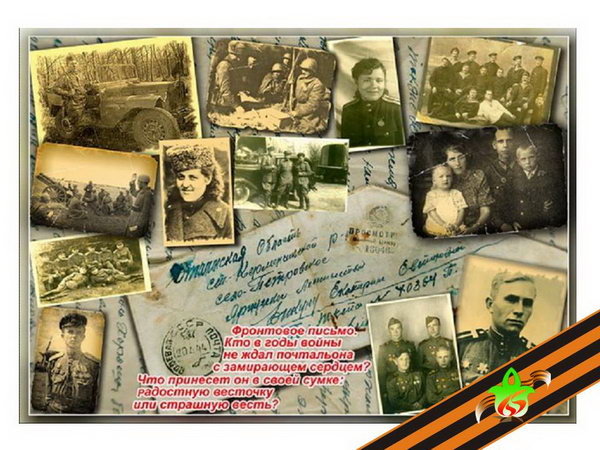
2. Answer the questions.
-
When did the Great Patriotic war begin?
-
What are the most important battles of the War?
-
Do you know any commanders, any heroes of the War?
-
Who of your relatives (grandparents) defended our Motherland?
-
How many people did our country / your town / district / village lose during this war?
-
What does Victory Day mark?
-
What was the Second World War for our country?
-
When and where the surrender document was signed?
-
What anniversary of Victory Day do we celebrate this year?
3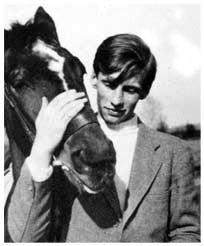 . Exam Zone. Read the text about famous anti-Nazi leader, a resident of Orenburg - Alexander Schmorell and match the titles A-F and the extracts 1-5. Fill in the table. There is one extra title.
. Exam Zone. Read the text about famous anti-Nazi leader, a resident of Orenburg - Alexander Schmorell and match the titles A-F and the extracts 1-5. Fill in the table. There is one extra title.
1. Alexander Schmorell was born in 1917 in Orenburg. Schmorell's father, a medical doctor, was a German born and raised in Russia. Schmorell's mother was Russian, the daughter of a Russian Orthodox priest. Schmorell was baptised in the Russian Orthodox Church. His mother died of typhus during the Russian Civil War when he was two years old. In 1920 his widowed father married a German woman who, like him, grew up in Russia. Fleeing from the Bolsheviks they left Russia and moved to Munich, Germany, in 1921, when Schmorell was four years old. His Russian nanny came along with them and she took his late mother's place in his upbringing. Alexander Schmorell grew up bilingual, speaking both German and Russian. He was an Eastern Orthodox Christian who considered himself both German and Russian.
2. After his Abitur (equivalent to high level High School diploma), he was called into the Reich Labour Service and then into the Wermacht (German Army during the Nazi era). In 1938, he took part in the annexation of Austria and eventually in the Wehrmacht invasion of Czechoslovakia. After his military service, the artistically gifted Alexander Schmorell began studies in medicine in 1939 in Hamburg. In the autumn of 1940, he went back with his student corps to Munich where he got to know Hans Scholl, and later Willi Graf. Together with Hans Scholl, Schmorell put together the White Rose's first four anti-Nazi leaflets. In the second leaflet Schmorell wrote a passage containing an outcry against the Holocaust.
3. In June 1942, Schmorell took part as a combat medic in the Russian campaign on the Eastern Front, together with Hans Scholl, Willi Graf and Jürgen Wittenstein, and came to strongly oppose the Nazis' treatment of enemy soldiers and civilians during campaigns there. Once back from Russia, he continued his studies in Munich in the 1942-1943 semester.
4. In December 1942, Schmorell, along with Hans Scholl, sought contact with Professor Kurt Huber. Together in 1943 they wrote the fifth leaflet "Aufruf an alle Deutschen!" (Appeal to all Germans!), which Schmorell then distributed in Austrian cities. Along with Hans Scholl and Willi Graf, he also painted words such as "Nieder mit Hitler" (Down with Hitler) and "Freiheit" (Freedom) on house walls in Munich. After the arrests of Christopf Probst and Hans, Schmorell attempted to escape to Switzerland but was eventually arrested on 24 February 1943, the day of his friends' funeral, after being recognized in an air raid shelter.
5. Alexander Schmorell was sentenced to death on 19 April 1943 at the Volksgerichtshof (People's Court) in the second trial against the White Rose. In the letters he wrote from prison he tried to console his family and assured them that he was at peace with his fate and not fearful of death. On July 13, 1943, at the age of 25, Schmorell was put to death by guillotine along with Kurt Huber at the Munich-Stadelheim Prison.
1
2
3
4
5
6
A. Dissident D. Early life
B. Trial and execution E. The Russian front
C. Best Friends F.Military service
4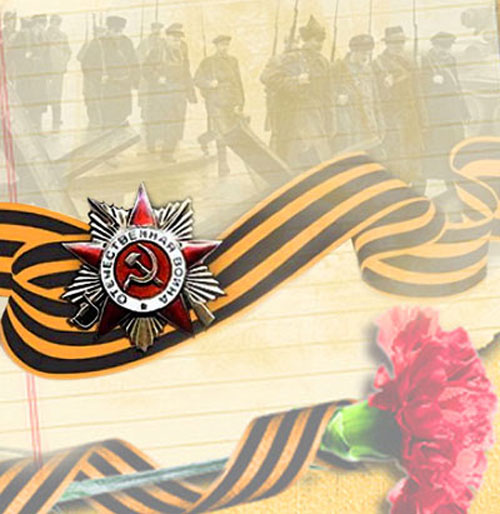 . Solve the quiz.
. Solve the quiz.
World War II
Quiz
1. When did the Second World War start?
a) in 1939 b) in 1940 c) in 1938
2. What was the only WWII battle that was fought solely in the air?
a) the Battle of Britain b) the Battle of Stalingrad c) the Battle of Berlin
3) Who was Britain's Prime Minister during the war?
a) Harold Winston b) Winston Churchill c) Margaret Thatcher
4. How many people lost their lives during the Second World War?
a) 30 million b) 40 million c) more than 60 million
5. What was the German code for the summer attack on the Soviet Union in 1941?
a) Operation Barbarossa b) Operation Dragon c) Operation Bismark
6. In 1943 Stalin, Roosevelt and Churchill met at a conference. Where did it take place?
a) in Cairo b) in Teheran c) in Yalta
7. Where were the war trials held after the war?
a) in Berlin b) in Nuremberg c) in London
8. How many years did the Second World War last?
a) 5 years b) 6 years c) 7 years
5. Use the words in capitals to form a word that fits in the space on the same line.
Orenburg's contribution to the Great Victory.
Soviet Union made an amazing _______ effort during the years prior to the WWII.
But when the war began, there was still at first a shortage even of basic weapons, like rifles and machine guns. The ________ of Soviet tanks and planes were destroyed within the first weeks of war.
Orenburg's distance from the German ________ during World War II led many Soviet enterprises to flee there, helping in the city's economic growth.
Over 40 industrial enterprises ________ to Orenburg (then Chkalov) from the European part of the USSR during World War II, this boosted the development of local industry.
Production at Orenburg ________ sevenfold between 1940 and 1945, with teenagers and women being the main labor force on the wells.
Orenburg plants __________ munitions - bombs and bullets as well as consumer goods.
Thousands of our Orenburg citizens took part in the Great Patriotic War. But these __________ came at a high cost. An estimated 20 thousands Orenburg soldiers perished in the war.
Their names are commemorated by several monuments in the city and the biggest of them is the "Salute, the Victory!" park. It is an open air ________ of military arms used by the Soviet army during the war.
INDUSTRY
MAJOR
INVADE
EVACUATION
INCREASE
PRODUCTION
ACHIEVE
EXHIBIT
6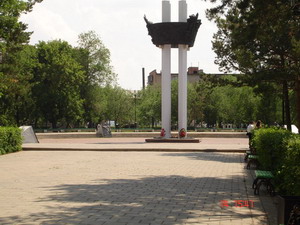 . Writing. Write a letter to your English speaking friend about our national holiday. Describe the process of its celebration in your place. Ask him (her) about the most important holidays in his (her) country. 7. Project work. Make a poster or a presentation on the topic "We must never forget".
. Writing. Write a letter to your English speaking friend about our national holiday. Describe the process of its celebration in your place. Ask him (her) about the most important holidays in his (her) country. 7. Project work. Make a poster or a presentation on the topic "We must never forget".
UNIT 3
STEP 1Transport in Orenburg.
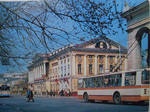
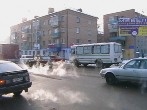
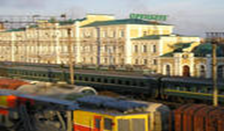
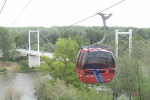
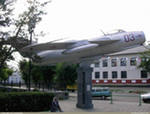
-
W
PLEASE PAY HERE
Buy your TRAVEL CARDS herehere can you see these notices?

-
Plane b) Bus c) Underground a) Bus Stop b) Airport c) Train
FIRE EXIT
PLEASE DO NOT TALK TO THE DRIVER
-
Bus Stop b) Airport c) Train a) Plane b) Bus c) Underground
TICKET 10 RUBLES
PLEASE FASTEN YOUR SEAT BEalt="ЭЛЕКТИВНЫЙ КУРС «ОРЕНБУРГСКАЯ ОБЛАСТЬ - ЖЕМЧУЖИНА УРАЛА»"S
-
Plane b) Bus c) Underground a) Plane b) Bus c) Underground
RAILWAY LINE
PLATFORM 3 AND 4
PLEASE HAVE YOUR PASPORT READY
WAY OUT
DON`T LEAN OUT THE WINDOW
a ) Bus Stop b) Airport c) Railway Station a) Bus Stop b) Airport c) Train
) Bus Stop b) Airport c) Railway Station a) Bus Stop b) Airport c) Train
a) Bus Stop b) Airport c) Train a) Plane b) Bus c) Underground
a) Plane b) Bus c) Underground a) Plane b) Bus c) Underground
2. Say which of the following verbs are used with the following means of transport:
VERBS
MEANS OF TRANSPORT
Catch get out of ride steer
Miss get on (to) take disembark from
Get in(to) get off drive board
a car a train a plane
a motorbike a boat a bus
a bicycle a ship a taxi
e.g. catch/get on a bus miss a bus/a train
3. Exam Zone
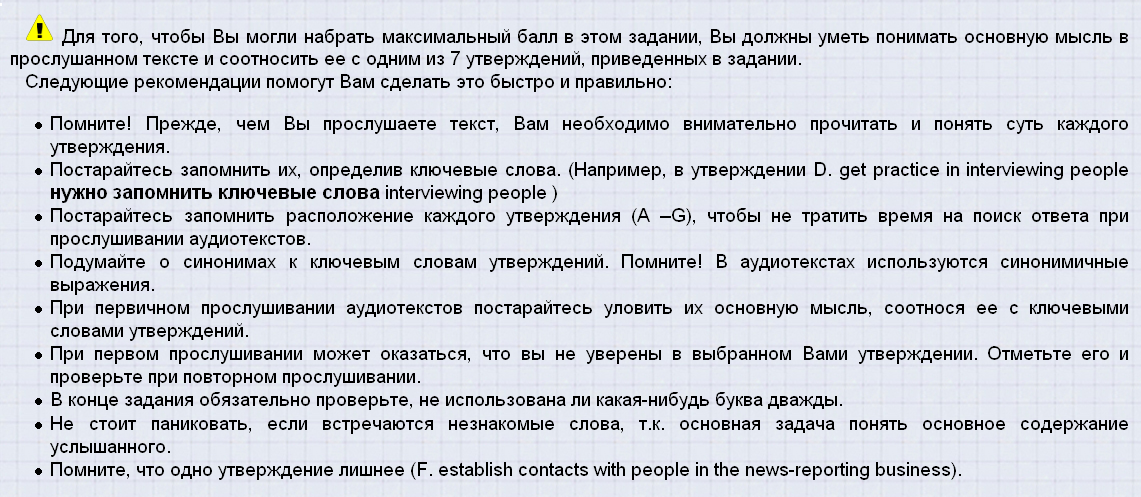
Listening.
Listen to six young people about different kinds of transport. Match the statement A-G to the following speakers.
A. The speaker tries to help the environment. B. The speaker has to drive. C. The speaker thinks that two wheels are better than four. D. The speaker believes that it is cheap to use public transport. E. How the speaker travels depends on the weather. F. The speaker saves time by going on the underground train. G. The speaker always goes on foot.
Speaker
1
2
3
4
5
6
Statement
Lexics.




Choose the best word A,B,C or D.
Orenburg has been a major railroad center ever 1…… the Samara-Zlatoust and Orenburg-Tashkent railroads were completed, respectively in 1876 and 1905. Now it has got many lines and is very 2……….. .
If you are in a hurry you can use Oreburg airlines. Orenburg's main airport is Orenburg Tsentralny Airport, 3……….. about 25 km east of the city, and is the headquarters of Orenair.
Over 500 000 people a day use the 4.……….. kinds of transport to get around Orenburg. Buses, minibuses, trolleybuses, taxis are 5. …….. to everybody. Buses and trolleybuses have a lot of 6………. in many different parts of the city and more than 25 routs can take you to any place you want.
-
A. before B. since C. earlier D. over
-
A. comfortable B. convenient C. useful D. sutable
-
A. positioned B. situated C. placed D. located
-
A. various B. different C. many D. lot of
-
A. suitable B. available C. provided D. found
-
A. stops B. stations C. shops D. place
Keys: since, comfortable, located, different, stops.
4. Work in pairs.
-
Look at the pictures and discuss: How would you like to travel? Which means of transport would you use and why?

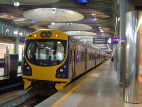


-
Use the following list of adjectives to compare various means of transport:
comfortable, safe, economical, polluting, fast, reliable, dangerous, expensive, convenient, tiring, cramped, pleasant, leisurely, inconvenient, slow, uncomfortable, relaxing, etc
e. g. St. 1: Travelling by plane is more comfortable and faster than travelling by car.
St. 2: However, travelling by car is…..
Unit 3
Step 2
Sportive Orenburg.
Warm - Up Activities
-
Think of as many words as possible related to the theme "Sports in Orenburg"


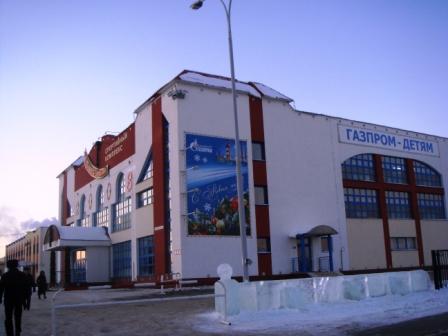











sports

swimming
-
Listen and repeat. Which sport can you see in the pictures? Do you have some of them in your area?
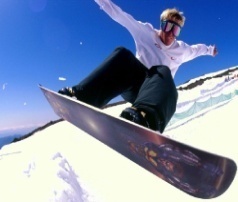
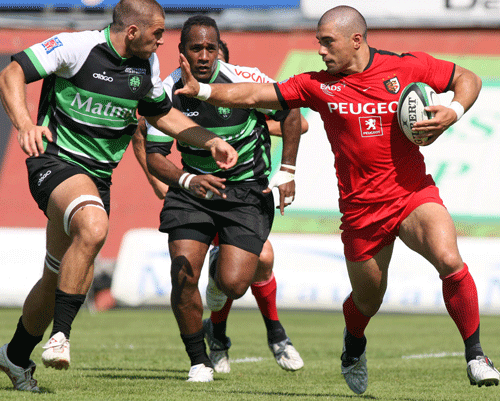
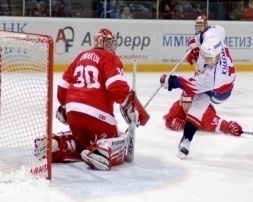
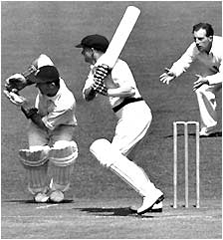
windsurfing
squash
cricket
rugby
badminton
long jump
high jump
tennis
water polo
voley ball
Scuba diving
ice hockey
aerobics
karate
gymnastics
basketball
jogging
climbing
cycling
football
swimming
snowboarding
golf
-
Which of the sports above are:
WATER SPORTS
TEAM SPORTS
INDIVIDUAL SPORTS


-
C



DO
GO
PLAYomplete the tables with the sports in ex. 2.
HOCKEY,
AEROBICS,
CLIMBING,
-
Win, beat or gain? Complete the phrases. Use five phrases to make sentences.
1……… a game, 2. .........an advantage, 3. …… support, 4. an ability, 5. …….. an opponent, 6. ……a competition, 7. ………. time, 8. ………… a problem, 9. ……….. a record, 10. ……… a medal, 11. ………speed, 12. ……….a prize.
-
e. g. win a game - I hope we are able to win a game in this competition.
-
Read the following T/F statements then read the text and answer them.
a. The first sport holiday took place in the city center.
b. The Council of Physical Culture was established in Orenburg in the 20th centure .
c. In 2008 two new schools were opened in Orenburg
d. There are some popular sports teams in Orenburg.
e. Many new sports complexes appeared in Orenburg after 2007
f. 201 medals were won by Orenburg sportsmen.
Sports as one of the most beloved activity in Russia.
The first official mention of sports occupations in the territory of Orenburg region refers to 1869. In June, 1920 the first sports holiday was held in the Urals Grove. As the first sports society "Dinamo" was created in Moscow in April 1923, the same sport club "Dinamo" appeared in Orenburg in a year too. A bit later the Council of Physical Culture was established in Orenburg. Nowadays the regional program " The Development of physical culture, sports and tourism in Orenburg area " is being realized. So the population is regularly engaged in physical culture and sports activities. It makes 19,4 % from common number of the inhabitants. There are 87 children sports schools where 67 222 children and teenagers do sports. In 2008 two new schools were opened - in Orenburg and Sorochinsk. There are some sports teams in Orenburg which are very popular: * The football club "Gasovik", is based in 1976. * The hockey club "Locomotive" based in 1937, was a member of Top League From 1995 till 2007 * Basketball club "Hope" has been in Superleague in basketball among the women since 2000. * Hockey club "Gasprom - OSU" debuted in Top league on hockey with a ball in 2008. In 2007-2009 the new sports complexes appeared in Orenburg: "Yubileiniy", "Оrenburzhie", "Olympic", "Zvezdniy", "Crystal". In official starts of World, European, All-Russia levels, 201 medals, including 53 gold, 83 silver, 65 bronze were won by Orenburg sportsmen. 33 sportsmen from Orenburg region took part in Europe and World championships on various kinds of sports.
-
Learn these idioms and use them to complete the exchange.
-
Get the ball rolling - сдвинуться с мертвой точки, начать;
-
Saved by the bell - спастись на последней минуте;
-
Throw in the towel - признать поражение;
-
The ball is in your court - твоя очередь;
-
Get somebody off the hook - помочь в трудной ситуации, вызволить;
-
A: Did Tim`s teacher shout at him for not doing his homework?
B: No, he …………… because she was in a hurry today.
-
A: You`re lucky there was no time left to ask you questions.
B: I know, …………..
-
A: I`m fed up. Whatever I do I just can`t get it right.
B: Come on. You are not going to ……….. now, are you?
-
A: Do you think your husband will make the decision?
B: No, I think ……………. Now.
-
A: Nothing`s happening. What should I do now?
B: If you call a meeting that should ………… .
-
Which sport did you do in primary school? Which sport do you do now? How often? Where? Who with? Tell your partner?
-
EXAM ZONE.
-
Listening.
Listen to six young people about health and fitness. Match the statement A-G to the following speakers.
-
I put a lot of effort into trying to look good.
-
I think you should only eat what you like.
-
I try to lead a generally healthy lifestyle so that I can achieve my ambitions.
-
I agree with the advice given to me but it is not easy to follow.
-
My values influence the way I live.
-
My condition doesn't stop me from having a full and active life.
-
I`ve been living unhealthily but now I`m making some changes.
Speaker
1
2
3
4
5
6
Statement
-
Wordbuilding.
Fill in the correct word derived from the words.
Sports facilities in Orenburg State University
Efficiency of youth sports …………… is ensured by close cooperation of the Physical training department, Sports Center "Penguin", Center of Children and Youth Creativity "Progress"
The Sports Center has its own stadium with two hokey courts, a 50-meters ..……. pool, gyms for sports games, judo, weight lifting, aerobics classes.
The university has its own riding school for all interested to go info equestrian sport.
On-campus sports facilities are available at the Sport and Health-improving Gym as well as at ………… sports grounds.
Some university training ……….. have their own gyms for sports games, weightlifting and athletic gymnastics.
The Center of Children and Youth Creativity "Progress" houses a ………….. gallery.
The Physical training department is actively involved in organizing sports events and competitions and most of OSU students take part in these kinds of activities. The university teams enter the contests hold by the Russian Students Sport Union and compete for local and …………….. championships.
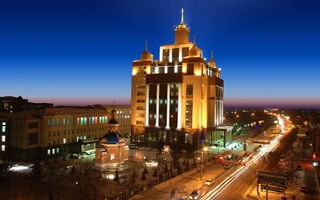
develop
swim
door
build
shoot
nation
Unit 3
Step 3
Sport's stars
Comment on the following statement.
In sports and journeys men are known.
Exam Zone
2. Read the text below and fill in the gaps with the correct parts of the sentences identified by the letters A-F.
T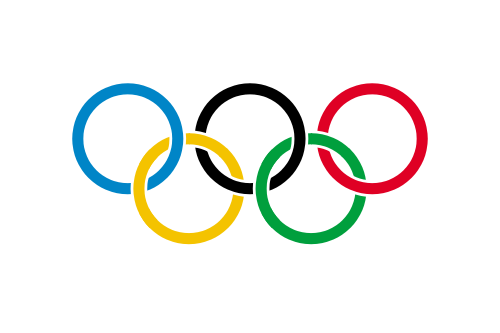 he Olympic Games have a very long history. They began in 777 BC in Greece and took place every four years for nearly twelve centuries at Olimpia. They included many different kinds of sports: running, boxing, wrestling, etc. All the cities in Greece sent their best athletes to Olimpia 1______________. For the period of the Games all the wars stopped. So the Olympic Games became the symbol of peace and friendship.
he Olympic Games have a very long history. They began in 777 BC in Greece and took place every four years for nearly twelve centuries at Olimpia. They included many different kinds of sports: running, boxing, wrestling, etc. All the cities in Greece sent their best athletes to Olimpia 1______________. For the period of the Games all the wars stopped. So the Olympic Games became the symbol of peace and friendship.
In 394 AD the Games were abolished and 2___________________________.
In 1894, a Frenchman, Baron Pierre de Coubertin, addressed all the sports governing bodies and pointed out the significance of sports and its educational value.
Two years later the first modern Olympic Games took place. Of course, the competitions were held in Greece 3_____________________.
In 1896 the International Olympic Committee 4__________. It is the central policy-making body of the Olympic movement. It is formed by the representatives of all countries which take part in the Olympic Games. The International Olympic Committee
decides upon the programme of the games, the number of the participants and the city-host for the Games. Over one hundred and fifty countries are represented in the
International Olympic Committee now. Besides, each country has its National Olympic Committee.
Summer and Winter Games are held separately. There are always several cities wishing to host the Games. The most suitable is selected by the International Committee.
After that the city of the Games starts preparations for the competitions, constructs new sports facilities, stadiums, hotels, press centres. Thousands of athletes, journalists and
guests come to the Games, and 5_____________________. There is always an interesting cultural programme of concerts, exhibitions, festivals, etc., for each
Games.
Russia joined the Olympic movement in 1952. Since then it has won a lot of gold, silver, and bronze medals. In 1980 Moscow 6________________________.
The latest Olympic Games were held in Barcelona. Russian sportsmen got medals for their records in many sports events.
A
B
C
D
E
F
A. to symbolize the continuation of the centuries-old tradition
B. it takes great efforts to arrange everything
C. to compete in the Games
D. was set up
E. hosted the Twenty-Second Olympic Games
F. were not renewed until many centuries later
3. Match the names of the people, their achievements and photos.
Tatyana Samolenko-Dorovskikh Fedor Kuzmin Dmitriy Dobroskok
Nadezhda Radzevich Alexander Dobroskok Julia Kuzina
She (born December 15, 1963 in Sekretarka; Orenburg region) is a retired middle distance runner who represented the USSR and later Ucraine. She dominated the sport in the late 1980's, winning three major gold medals in 1987 and an Olympic gold medal in 1988.
He (born June 12, 1982 in Buzuluk, Orenburg region ) is a Russian driver who competed in the 2000 Summer Olympics and in the 2004 Summer Olympics . He won a silver medal in the 3 m Springboard Synchronized event at the 2000 Summer Olympics with his partner Dmitry Sautin.
In the 2003 World Championships in Barcelona, he won gold in both 3m individual, and 3m syncrho (with Dmitry Sautin). He also won the 2009 European championships on 3m.
Dmitri Sautin
HeDiviDiving is the sport of jumping or falling into water from a platform or springboard, sometimes while performing acrobatics. Diving is an internationally-recognized sport that is part of the Olympic Games. In addition, unstructured and non-competitive diving is a recreational pastime.Diving is one... (born March 1, 1984 in Buzuluk, Orenburg region ) is a Russian driver. Competing in the 2008 Summer Olympics, he won a bronze medal in the men's synchronized 10 meter platform with teammate Gleb Galperin. He also competed in the 2004 Summer Olympics.
She (born March 10, 1953 in Orenburg) is a Russian volleyball player. Competing in the 1980 Moscow Olympics, she became a champion, also winning three European gold medals and five USSR major medals.
He (born April 14, 1983) international master of sports of table tennis, a participant in XXIX Summer Olympic Games.
She (born October 17, 1976, Orenburg region) is a Russian judoist who participated in the XXIX Olympics in 2008.
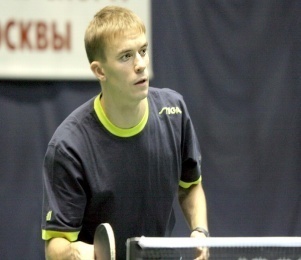
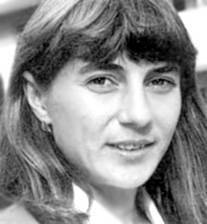
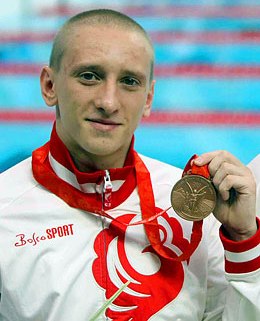
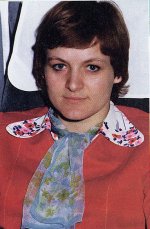
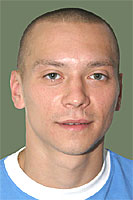
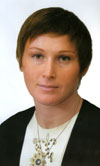
4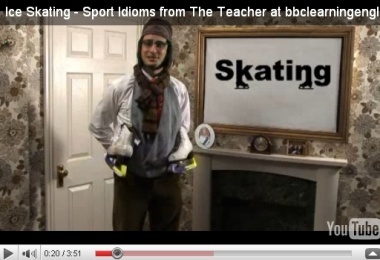 . Listen to the BBC teacher and learn these idioms.
. Listen to the BBC teacher and learn these idioms.
englishvideo.ru/uroki-ot- bbc/videouroki-ot-bbc-idioms/figurnoe-katanie-sport-idiomy.html
Get your skates on = hurry up
Skating on thin ice = do something risky, take a chance
Skating over something = to move over or deal with something quickly
5. Complete the sentences using idioms given above.
I will __________ the things that I am not sure about.
"Don't mention that subject during the negotiations
or you could _________________."
"_____________ - we're late as it is!"
The speaker _________the touchy issues with discretion.
___________by not sending in your college application before now.
"You may __________there if you wish," she said, after a pause for consideration, pointing to a deserted spot at the leeward end of the pond, where the ice was too rough for comfortable skating.
6. Express yourself.
What are people all over the world fond of? What unites people of every nationality?
Why do people prefer to be out of town on a frosty sunny day? What are the most popular outdoor winter sports in Orenburg region? What opportunities for sports does Orenburg summer afford? What game takes the first place in public interest in Orenburg region?
When do many people indulge in boxing, wrestling, athletics, gymnastics? Who goes in for calisthenics? Why is chess the great international game?
7 . Distribute between English sports and sports typical of Orenburg region. Fill in the table.
. Distribute between English sports and sports typical of Orenburg region. Fill in the table.
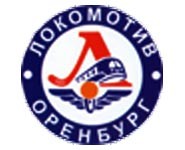
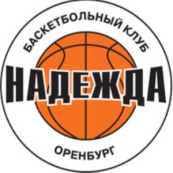
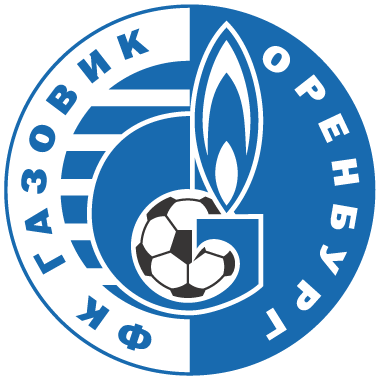
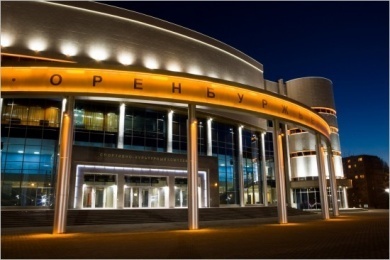
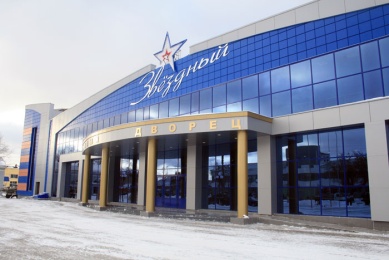
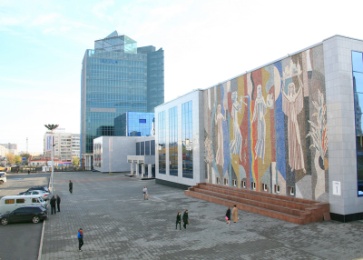
English sports
Sports typical of Orenburg region
Miscellaneous
T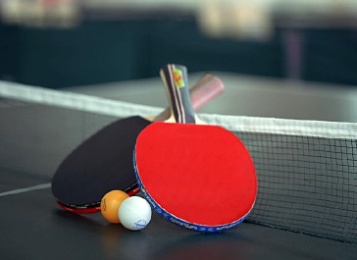 able tennis is one of the most popular kinds of sport in Orenburg region. It was first invented in England in about 1880. At first the game had several strange names: Gossima. Whiff Whaff and Ping Pong. It wasn't until 1926 that the International Table Tennis Association was formed with international championships and rules. Although the game was invented in England British players don't have much chance in international championships. It's the Chinese with their fantastic speed and power who win almost every title. Table tennis looks more like gymnastics when the Chinese start playing, with the ball flying over the net at speeds of over 150 kilometres per hour.
able tennis is one of the most popular kinds of sport in Orenburg region. It was first invented in England in about 1880. At first the game had several strange names: Gossima. Whiff Whaff and Ping Pong. It wasn't until 1926 that the International Table Tennis Association was formed with international championships and rules. Although the game was invented in England British players don't have much chance in international championships. It's the Chinese with their fantastic speed and power who win almost every title. Table tennis looks more like gymnastics when the Chinese start playing, with the ball flying over the net at speeds of over 150 kilometres per hour.
Project Work. If you would like to learn more about Orenburg sportsmen, visit local sites and make a presentation about them.
gorodurala.ru/post/2010/01/17/orensport.html
admin.orenburg.ru/div960/968/
Начало формы
![]()



Конец формы
UNIT 3
STEP 4
Education in Orenburg.
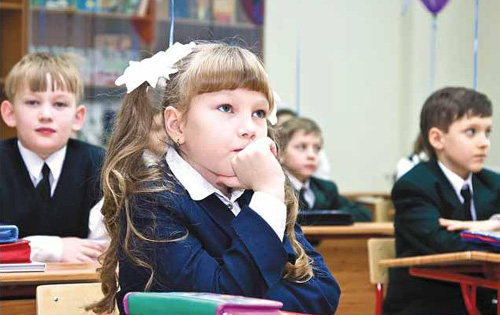
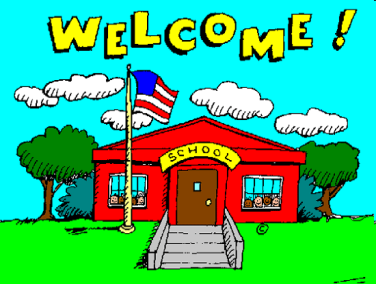
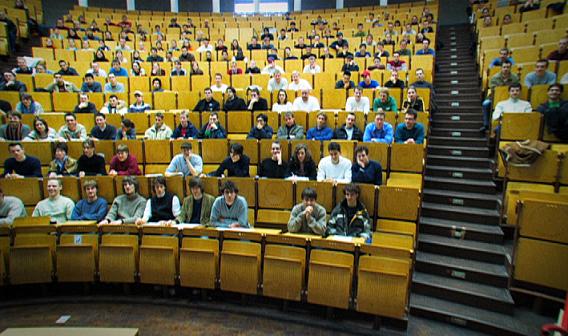
1.Match each headline (1-7) to texts (A-F). There is one extra headline you do not to use.
Education in Orenburg.
-
Agronomists study there.
-
Everything concerns medicine.
-
Other Universities.
-
Teachers` education.
-
Secondary education in Orenburg.
-
Technical professions.
-
Abroad education.
-
There are many types of schools in Orenburg: ordinary schools, gymnasiums, lyceums, boarding schools, like President Cadet School, where pupils not only study but also live here. Some schools include a wide range of school subjects, like playing different musical instruments, drama, economy, photography and sports. There are also some special schools like language schools, dance schools, art schools, design schools, a TV skills school. Children have all opportunities to leave schools with brilliant knowledge and enter Orenburg Institutes and Universities.
-
A Branch of Kuibyshev Polytechnical Institute (currently Samara State Technical University) was established in 1955. It was transformed to the Orenburg Polytechnical Institute in 1971. In 1994 it was named as Orenburg State Technical University. Gained status of university in 1996. Currently, there are 18 Faculties, 3 Research & Development institutes, 4 Regional Branches, technology incubator "OSU Technopark", botanic garden, meteorological station, sport complex.
-
Chkalov State Medical Institute was established in 1944. It was renamed to Orenburg State Medical Institute in 1957 (at that time Orenburg city regained its original name after being named Chkalov from 1937 till 1957). Gained status of academy in 1994. Currently there are 8 Faculties: Medicine, Pediatric, Stomatology (Dentistry), Pharmacy, Clinical Psychology, Nursing, Public Health, Continuing Education.
-
The Institute of Public Education was established in 1919. Renamed to Pedagogical Institute in 1930. Transformed to Pedagogical University in 1996. There are 10 Faculties and 4 Research Institutes.
-
Orenburg Agricultural Institute was established in 1930. It was transformed to Orenburg State Agricultural Academy in 1992. Since 1995 named as Orenburg State Agrarian University. There are 8 Faculties and 4 Institutes.
-
There are some more Universities in Orenburg. If you want to be a lawyer, enter Orenburg Branch of Moscow State Law Academy, everything concerns trade you can know in Orenburg Campus of Russian State University of Trade and Economics. Experienced managers graduate Orenburg State Institute of Management. Orenburg Branch of Gubkin Russian State University of Oil and Gas will help you to find the job in Oil and Gas industry.
2. Work with a partner. Look through the text again and find a word that means…
a) various ……………………
b) possibilities ……………………
c) finish ……………………
d) was founded ……………………
e) children doctor …………………….
f) professional ……………………
3. How are the following related to the text? Scan through the text to find out.
-
1955
-
1957
-
1919
-
1930
4. Cover the text and take turns to tell each other something you remember about schools and Universities in Orenburg.
5. After school you are going to enter the University. What is the difference between the following?
a) to take an exam/to pass an exam /to fail an exam
b) to apply to University/to be accepted by a University
-
Work with a partner and decide what the answer is to the following questions:
a) What is the most popular university in Orenburg?
b) Is it difficult to get accepted to study at a university?
Do you have to pass an exam or an interview?
c) Do University students usually live at home with their parents, or in their own accommodation?
d) Is it expensive to go to university?
c) What do university students usually wear?
7. Are you a serious student?
ARE YOU A SERIOUS STUDENT?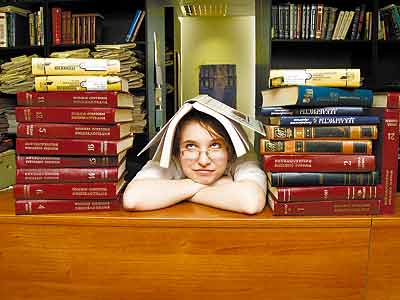
It is quite difficult to get accepted as a student at University - you have to pass a special exam.
So what about you - are you a serious student? Work with your partner. Ask and answer the following questions.
-
How do you prefer to study?
-
In a quiet room with the door closed. c) In front of the television.
-
With some music playing quietly. d) As little as possible; you never open the book
outside class.
-
You are about start studying when your friends come round. They want to go to a café. Do you:
-
Explain that studying is more important than sitting in cafes and tell them all to go home and open their books.
-
Say you`ll meet them later, after you`ve finished studying.
-
Feel a bit guilty about the studying, but go to the café anyway. You can always study more tomorrow.
-
Grab your jacket and go, feeling happy.
-
Your teacher writes a report on your progress. She puts it in a closed envelope and asks you to give it to your parents. Do you:
-
Give the report to your parents with a big smile - they are sure to be delighted.
-
Give the report to your parents and hope it`s OK.
-
Open the report carefully so that no-one will know, and change the negative bits.
-
Hide the report. Your parents would go crazy if they saw it.
-
You have to take an exam. When do you start preparing yourself for it?
-
About six months in advance. c) The week before the exam.
-
About the month before the exam. d) The night before the exam, in panic.
-
Have you ever cheated in an exam?
-
Of course not! Cheating is dishonest. c) Once or twice. Hasn`t everybody?
-
No. What if the teacher finds out? d) All the time. It`s the only way you can answer
the questions.
-
Where would you most like to go to university?
-
Abroad, so that you can improve your language skills.
-
In your home town. It`s easier to study when your family takes care of you.
-
In a different town so that you can have a great social life without your parents knowing where you are all the time.
-
Nowhere. More years of studying? You have to be joking!
-
It`s your first day at a new college and you are going to meet your teachers and fellow students for the first time. What do you wear?
-
A suit. You want to make a good impression.
-
Smart jeans and a shirt - clothes that looks good but casual.
-
Your sexiest clothes. You want the other students to notice you.
-
The oldest jeans, two nose rings and your hair dyed pink. Being a student is an opportunity to create your own style.
-
How much studying do you do outside class?
-
At least an hour every evening. Sometimes you ask the teacher for extra work.
-
At least an hour most evenings. Sometimes you give work to your teacher a little late, but you usually do it.
-
It depends what`s going on your social life. Parties usually come first.
-
Studying outside class? No way!
-
You arrive for Grammar class to find out that your teacher is sick and the class is cancelled. Are you:
-
Devastated. You have been looking forward to that class all week.
-
Determined to spend the time studying grammar by yourself.
-
Relieved. Now the teacher won`t find out you haven`t done your homework.
-
Delighted. You get out of college as quickly as you can.
-
You have to choose which course to take (science, languages…). How do you decide?
-
You choose the courses that will be most useful in the future.
-
You pick the courses that interest you most.
-
You pick the same courses as your friends so that you can be together in class.
-
You decide which courses are the easiest and take those.
When you`ve finished, give your partner one of the following grades:
Grades:
Mostly "a"s: an excellent student - will pass all exams. Perhaps this person needs to relax and
socialize more.
Mostly "b"s: a good student - works hard, but still has time to socialize.
Mostly "c"s: this student enjoys socializing more than studying.
Mostly "d"s: this student needs to work harder. Too much fun and not enough work.

Конец формы
68



